Tommy Cash Dropped a New Single, but Who Really Gives a Shit?
Watch the new music video below.
Stay informed on our latest news!
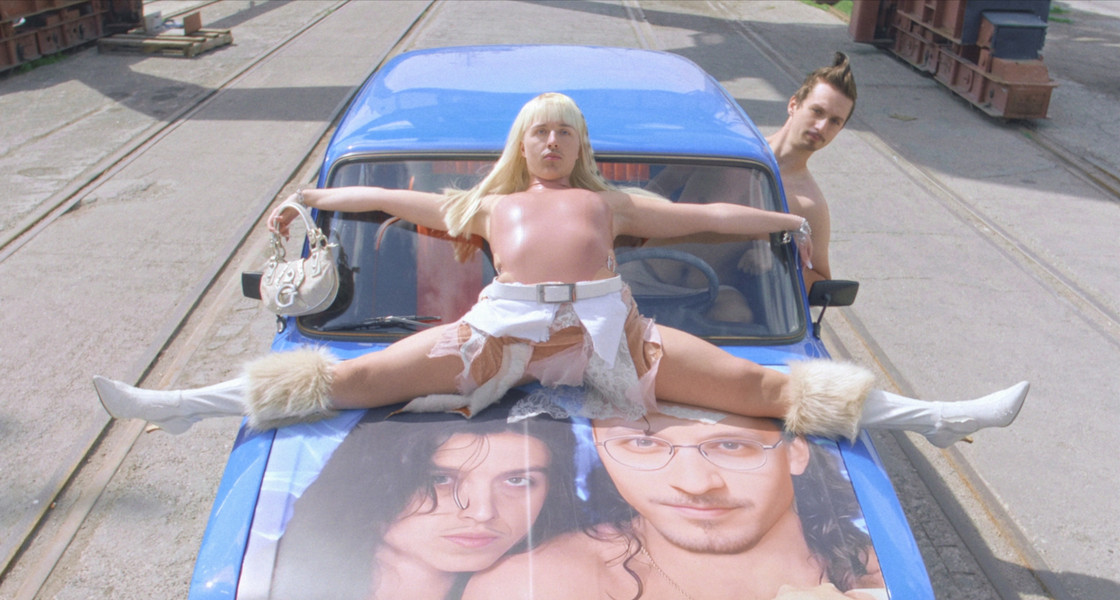
Watch the new music video below.
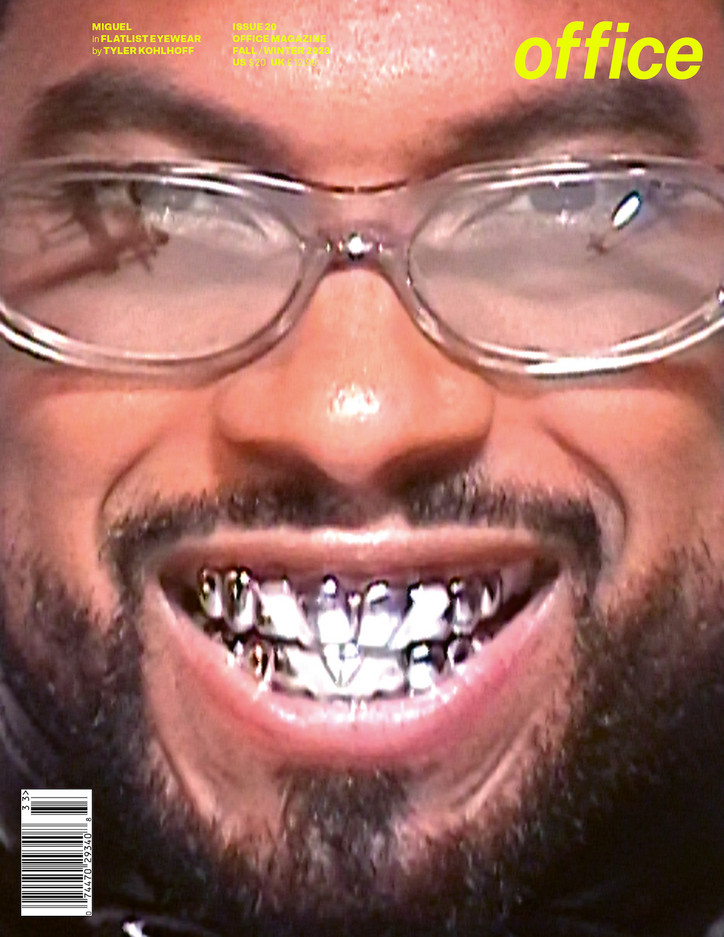
Testing these newfound limitations, he’s taken up the art of body suspension, an ancient spiritual practice that involves rigging a human body to hang from implements that have been placed through temporary perforations in the skin. The pushing of limits both physical and mental and the realizations that come forth from this practice are the creative sapling from which Viscera sprouts.
Both Viscera and suspension are acts of intrepid exploration; fearless plunges into the dim limits and unexplored recesses of Miguel’s body and mind. What reemerges from this mental cartography is a record from Miguel that is more raw and vulnerable than ever before. Within the context of the album, Miguel is wholly reimagining his relationship to himself in the search for authenticity and nourishment. Viscera is an act of forgiveness, acceptance, and self-love — his life and subconscious alchemized and transmuted into song.
Tracks like “Number 9”, which Miguel considers the album’s conceptual centerpiece, demonstrate his ability to develop ideas without smoothing over their complexity, reflecting a discipline at times lacking in past projects. This newfound discipline is a byproduct of the calculated restraint he’s instilled upon himself during the last few years.
He traces this journey back to the idiosyncratic punk scene of his youth in San Pedro, California, where the frenzied backyard shows of local bands like Minuteman instilled in him the values of self-respect and accountability as well as the necessity of violent forms of catharsis.
For this issue of office, Miguel went on a hike with Editor-in-Chief Simon Rasmussen to unravel the beliefs, experiences, and lessons that have shaped this stage of his becoming. Traversing the trails of Griffith Observatory, Miguel reflected on vivid childhood memories of music, growing up in-between races and religions, mortality, and being true to oneself.
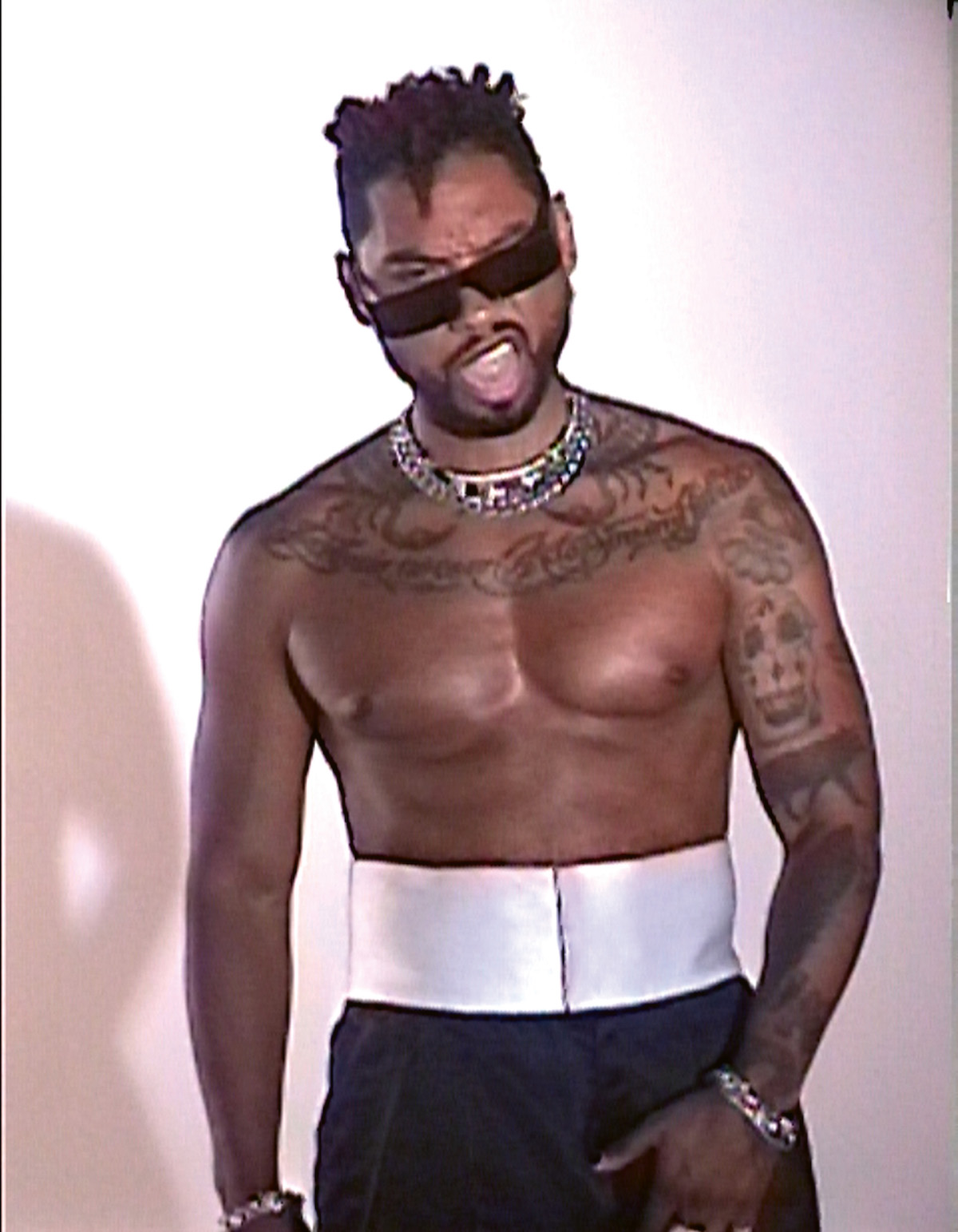
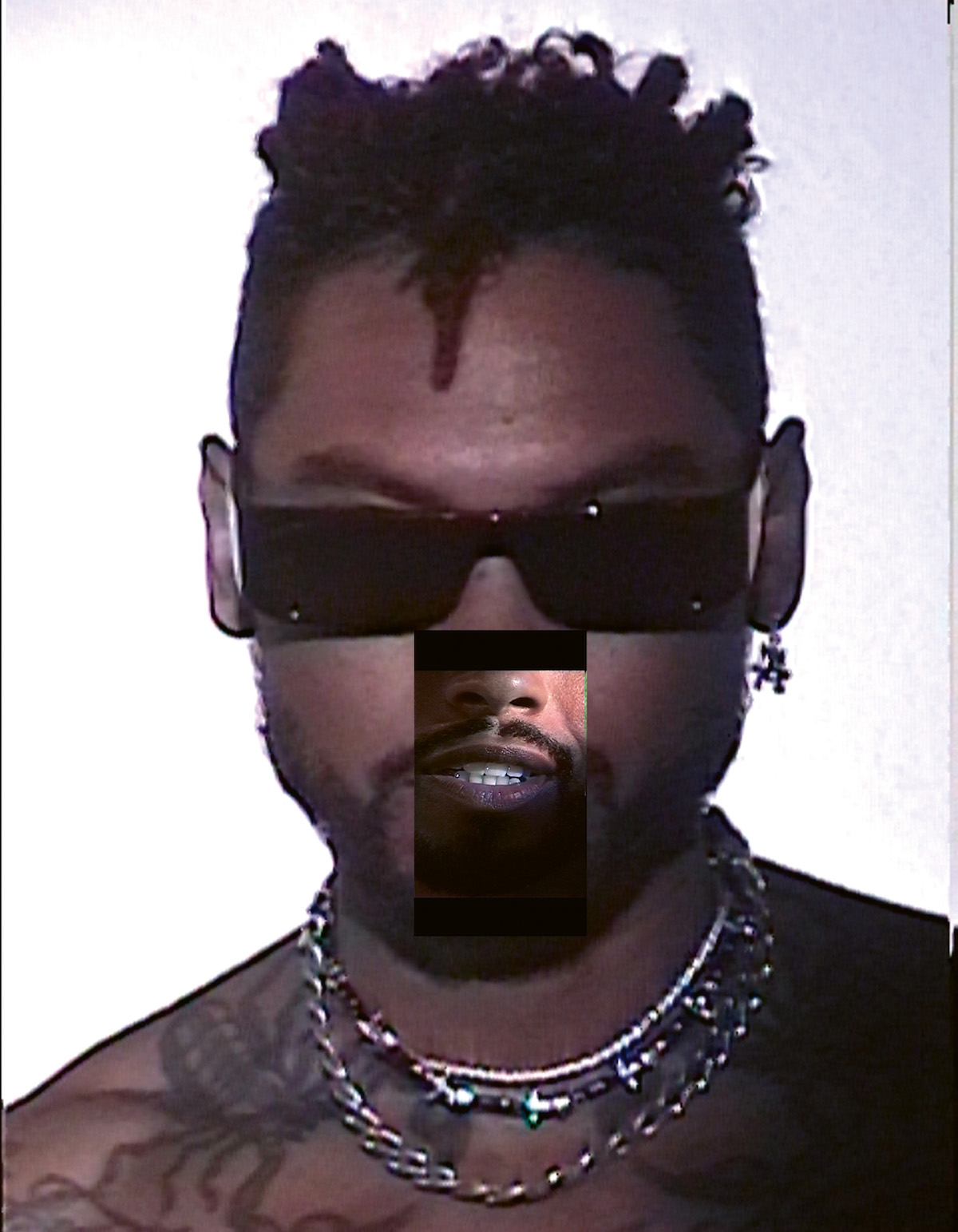
Simon Rasmussen— What was the process for this album? I know that you've gone through something on your personal side, which I can relate to. I'm divorced — two years now.
Miguel— Well, I’ve learned that apologies and congratulations are both in order. What a trip life is — to have experiences that can cause grief and create space for celebration. Something that creates space for a levity and breadth that both require or deserve recognition.
SR— That's what it is. I know that I was in a bad space due to the decisions that I made.
M— We're imperfect, brother.
SR— It's the lessons I've learned that have gotten me to where I am now. The healing, the forgiveness, being able to sit down with the pain and say, “Ok, I’ve made mistakes.”
M— Everybody does. Some are deep, some are easier to figure out. It's something that my divorce really forced me to face and that was an unexpected gift.
SR— That's a huge cause for celebration, as you say.
M— It’s a time for reflection in a way that had not been provoked before. In all honesty, I don't know if there’s anything else that could have gotten me to that kind of serious introspection. Talking with older friends of mine — therapists, mentors — who have either experienced divorce themselves or through friends, relatives, or clients, it’s always common that we — men especially — require jarring experiences to make immense changes in our lives.
SR— Exactly, and I'm like, “ Why can't I just figure this shit out?”
M— It's a part of the human experience, it’s part of the game — the accepting, the learning, the forgiving.
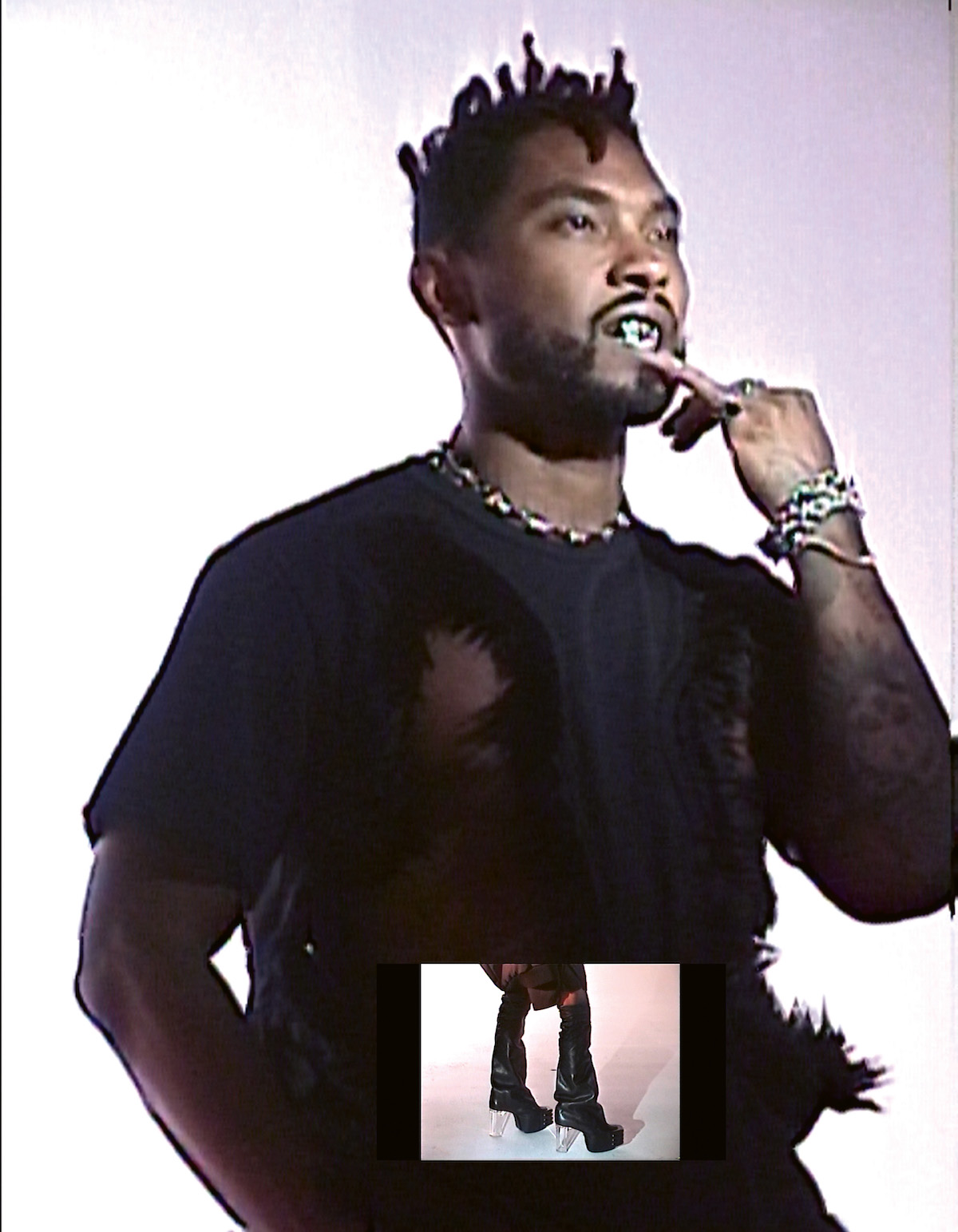
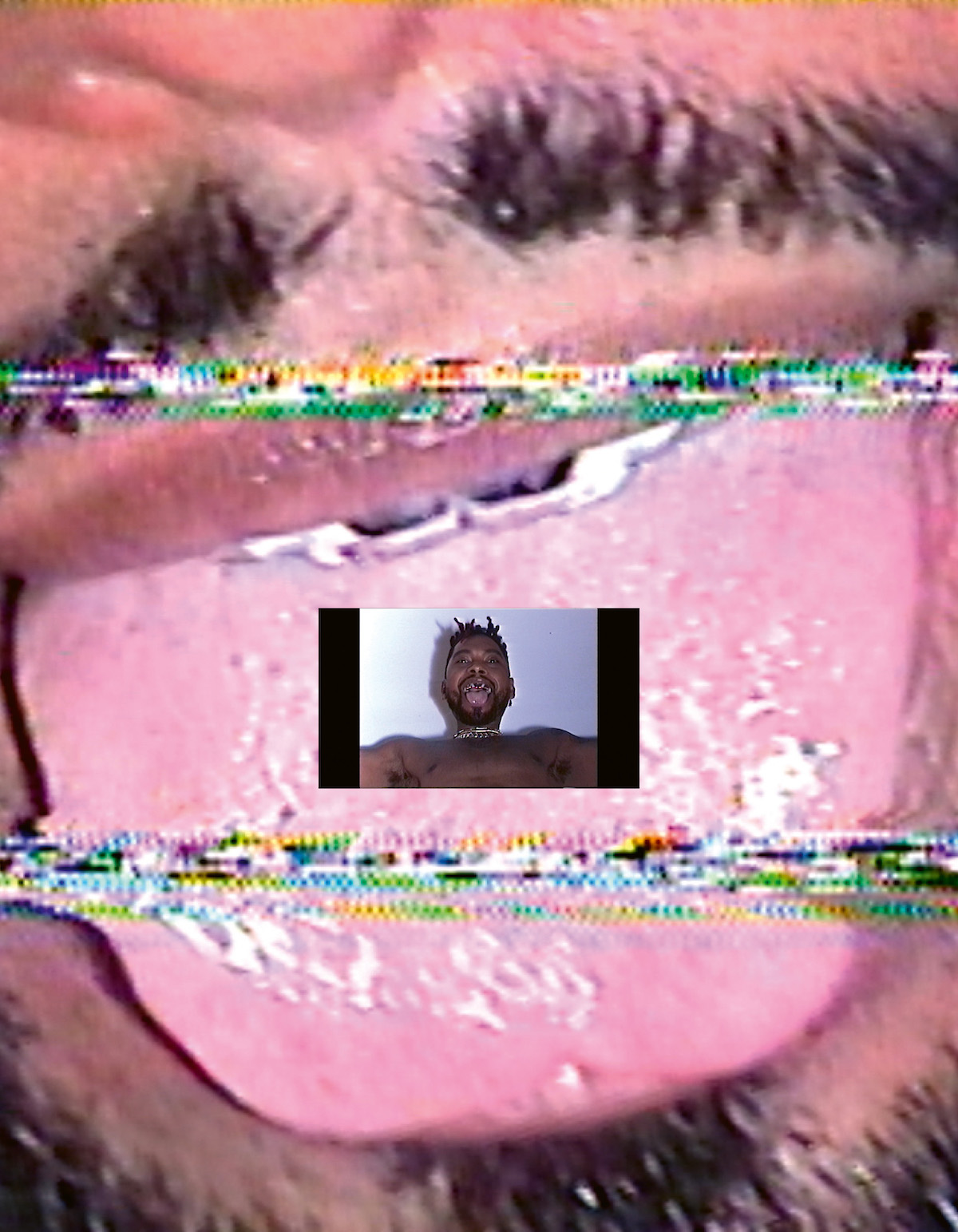
SR— How far along are you in that process?
M— I think that I’ve tapped into an opportunity to recalibrate and I don't want to fuck that up, for real. . As we were saying, you start to realize how you want to spend your time. What matters can get cannibalized by distractions, but being able to recognize that and pivot is probably the phase that I'm in my life overall. It's about discipline and finding a way to be prolific. That's the real goal.
SR— I’ve struggled with finding the balance between discipline and allowing myself the grace of just doing things for me.
M— I think it was Hunter S. Thompson who said it best. “Life should not be a journey to the grave with the intention of arriving safely in a pretty and well-preserved body, but rather to skid in broadside in a cloud of smoke, thoroughly used up, totally worn out, and loudly proclaiming, 'Wow! What a ride!'” Giving ourselves true understanding and being grateful for the opportunity to do is so important but also is being accountable for what we do.
SR— For me, it's about being 100% accountable for my life.
M— A million percent. Life is meant to be lived, bro. I believe it and again, it's discipline that ultimately dictates how things are done, because it's not so much what we do, it's how we do it. I've learned that in small ways and I've unfortunately learned it in really heavy, fucked-up ways, and I'm a better man for it. I grew up in San Pedro, a small town in LA, with a big art and punk scene in the eighties. When I do take my liberties, I'm doing it with the utmost respect for myself, and others. I think that's the most punk thing that one could do or be — to live with self-discipline, to be self-governing. Have you ever heard of Minutemen?
SR— I think so.
M— A really important punk band in the eighties; their energy is something that I'll never forget being around. They embody what to me is at the heart of what it means to be punk. As a mixed kid growing up in San Pedro, I experienced getting jumped by Black and Brown people but also getting knocked down at backyard shows, once when the most unsuspecting white dude with a skinhead helped me up, and asked if I was alright. That to me is kindness as well and where I draw from. As I come into my own, I think about that a lot. Reciprocity; if we treat ourselves good, we treat others good; we hold ourselves accountable, we hold others accountable. If we have it within ourselves, then there's really nothing that anyone could question about what we do, because it’ll show in every expression of our lives.
SR— Is there a spiritual practice you follow?
M— How do I keep my shit together?
SR— Exactly!
M— Definitely meditation, but I also dabble in plant medicine. I do drugs sometimes, with intention, to get past any conscious blocks, any distractions, any fears that keep me from seeing what the fuck is really going on. That's been super helpful. I'll do it by myself if needed, but I also enjoy it with people I trust. More than anything though, it's talking with my friends, my loved ones. We’ll have deep convos over dinner and to me that’s beautiful. This is probably my favorite part of where I’m at in life right now.
SR— I feel that. I was a drug addict when I was 23, 24 years old, but now, I can't do any of it. I don't drink. I don't do drugs. It’s been 18, 19 years, and discipline has been a big part of sobriety. Maybe I can revisit at some point, but honestly, for now, I’m good. What I enjoy now is deep conversation as well.
M— Having people that you can relate to and share principles with, people to learn from and teach, that’s what matters. The one thing I will say that I've become more aware of is my own mortality — not that I wasn't aware of it before, but the awareness is heightened now, more palpable.
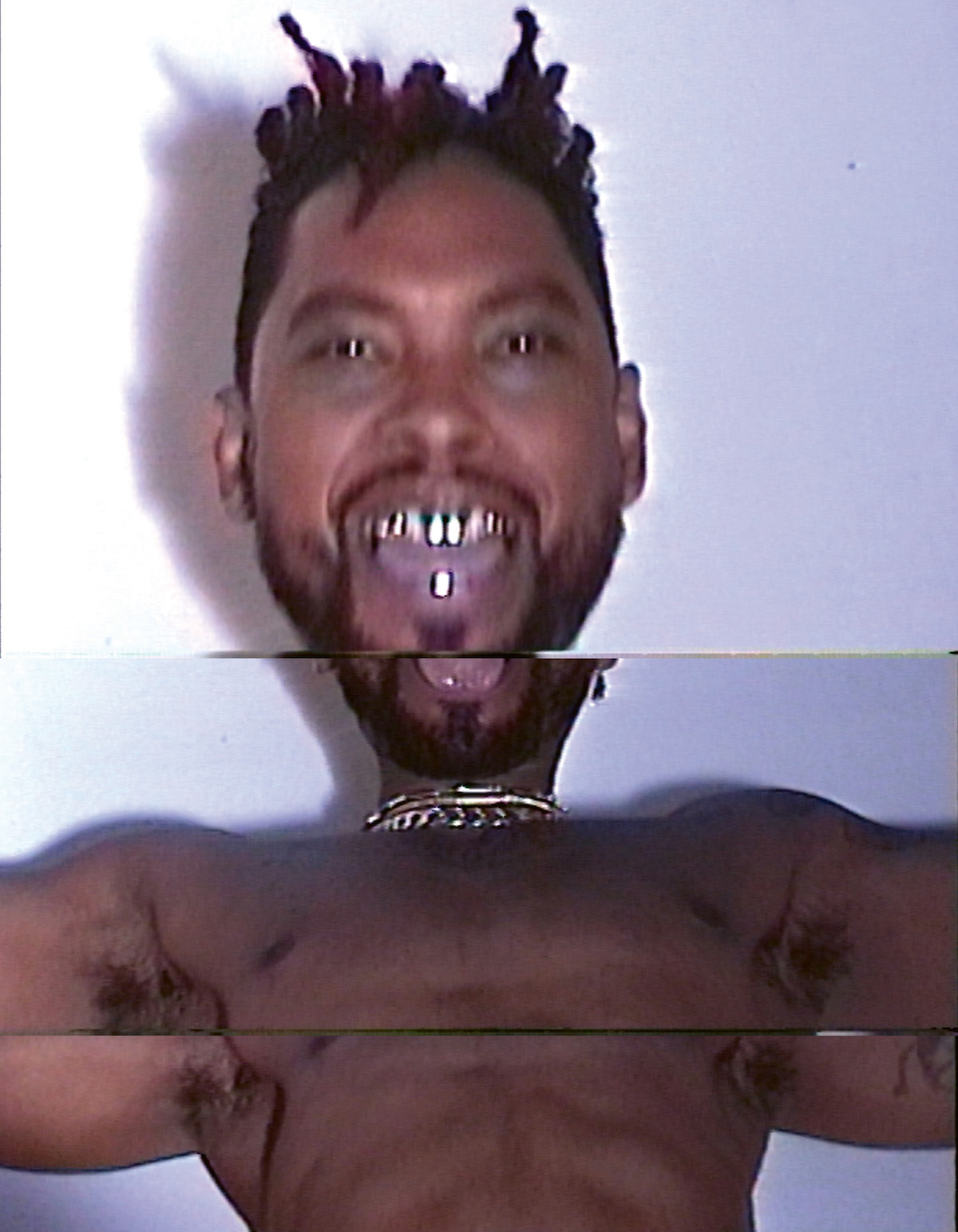
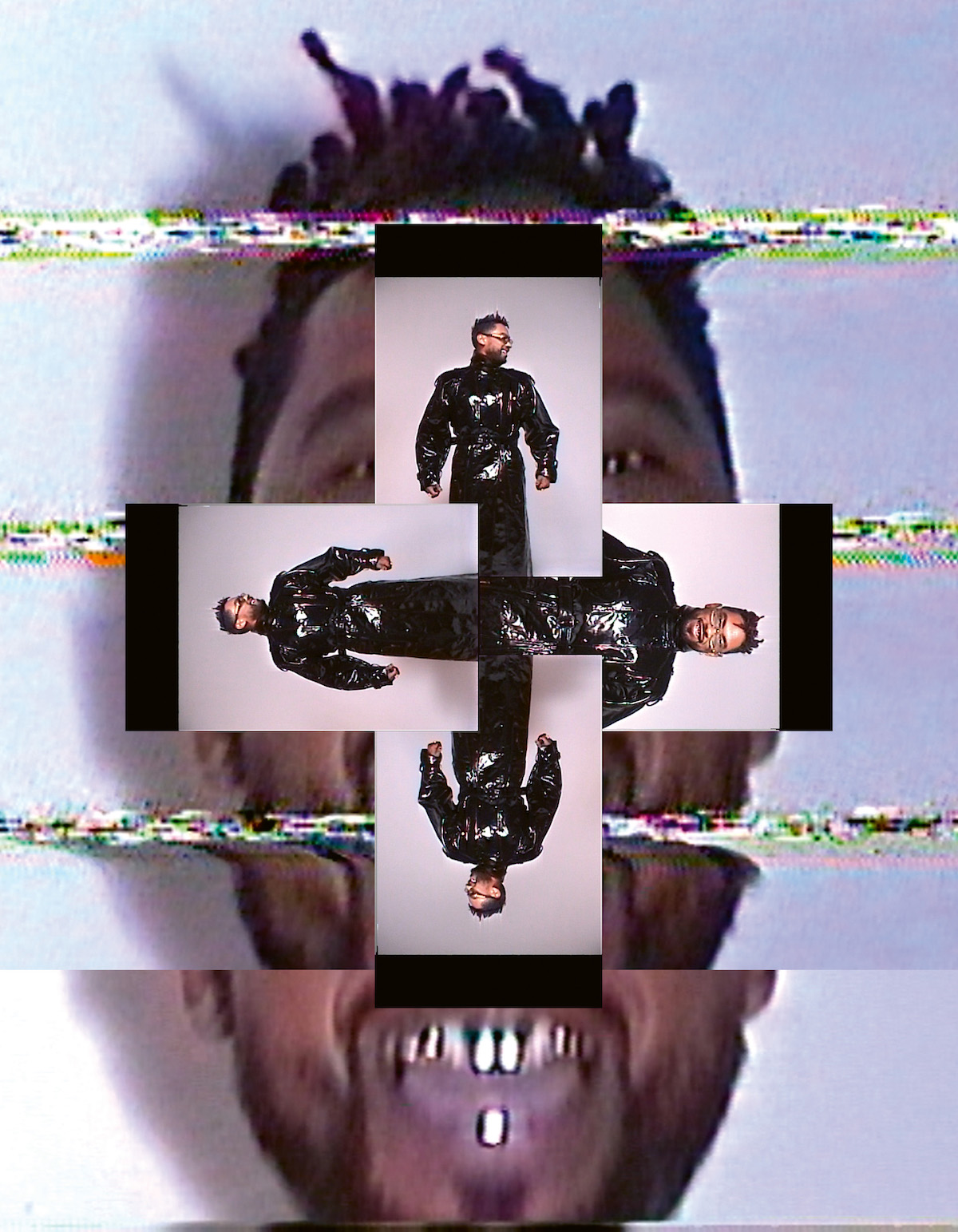
MIGUEL wears COAT by SAINT LAURENT, GLASSES by FLATLIST, JEWELRY is TALENT'S OWN
SR— You have to want to make the best of life while you’re here.
M— I think it’s about honoring all your experiences. The good, the happy, the sad… All of it.
SR— I've been reading a lot of Eckhart Tolle. Also Don Miguel Ruiz.
M— The Four Agreements go crazy.
SR— Agreed. There's so much about forgiveness in it.
M— I think we can do things to our detriment because we want so badly for things to be the ideal, and you realize sometimes it's just not the path. That path of forcing things and trying to make things go your way is rooted in fear of letting go of what you're expecting or what you're wanting it to be. There’s the one that says to just always try your best.
It's starting here internally [Points at head]. If you are treating yourself badly, negative self-talk will manifest and come out in other ways, and then how could you not treat other people like that? You've given yourself the permission to do it to yourself.
SR— Same with boundaries. I found myself crossing other people's boundaries, but reflecting and looking inward, I realized that I didn’t have that boundary for myself, so how could I honor it with other people?
M— It’s a trip how, taking a look at your own habits, you realize that some of them are not even necessarily yours. There’s ones taken on from your circumstances, from your parents, from your family. Being able to look at things and say, “Actually that's not even me. I remember my grandmother doing that sort of thing. That’s probably where my mom or dad got it from.”
SR— I just had a conversation with my mom in which I had to deliver some bad news and I was afraid to. I got myself around to it and she was hurt for a minute but I told her how I felt and she thought it was interesting because she always avoided similar conversations with her mom.
It’s exactly what you said. It seems linear, but it’s a cycle and now I have tools and some kind of awareness to do something about it.
M— Again, we didn’t get here overnight. It doesn’t mean that we can’t make massive changes in a short amount of time, but with intention and clarity, we can grow exponentially. It’s important to give ourselves a little bit of grace.
SR— Why do you do what you do?
M— Initially music was my way of understanding people and, I hate to admit this, but even as a kid I wanted to be liked.
SR— We all did at some point.
M— I was sheltered from a lot of my neighborhood and other kids. I was allowed to play here and there, but making friends that weren’t in the same religion was off-limits. It made my relationships with my peers a little obtuse and growing up racially ambiguous in the eighties was also a big thing. There was always a little bit of distance from people, and music was one of the ways that I could get people to talk to me. Now at this point in my career, I could continue to do what makes people “like” me, but it’s so less about wanting. I could continue to make the song that everyone loves again and again and again, but I find myself wanting to pursue truth and that doesn't always make people happy.
SR— I feel you.
M— As an artist, my job is to express myself in the purest way possible, because that is where true emotionality resides. I lean into my connection to art across the board as a sort of north star when it's time to make decisions on what it is, why I do what I do. I ask, "Does this feel true?" If it's true, it's going to connect with someone. That's why being 5, 6 years old, hearing Donnie Hathaway, and being able to grasp the pain, the loss, the grief he was going through stuck with me. Why could I feel that way if I wouldn’t know romance in my life for decades? That's emotionality. That's the fucking goal and that's what we're going for.
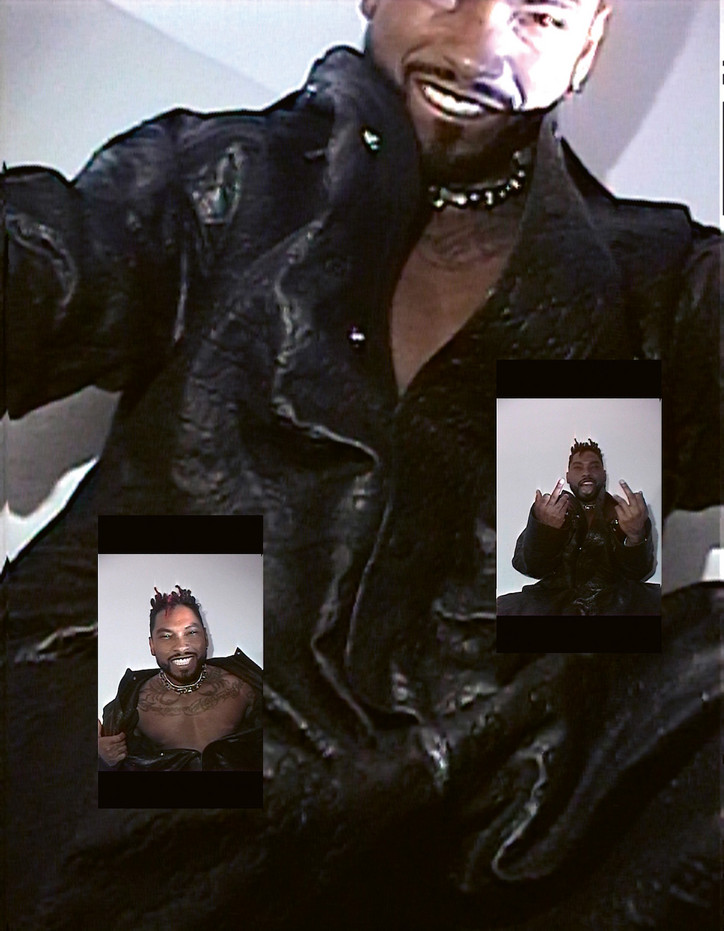
MIGUEL wears JUMPSUIT by GUCCI, JEWELRY is TALENT'S OWN
SR— Punkness and spiritually seem like separate things, but today it feels spirituality and emotionality are punk. That's being offline; having real connections; everything you just talked about. I don’t like to put labels on anything, but you definitely vibrate with a punk sensibility.
M— I grew up as an artist in front of everyone, and a lot of people lack the actual context — that I grew up around punks and around Cholos, and around real gangsters. Now, I’m in a place where I’m just going with what feels right. I don't feel the need to make anyone feel comfortable because they don't understand where I’m from and all they know is that I make songs about love or sex.
SR— That’s what I think about life. Understand it backwards, and live it forwards.
M— True. I will say that the world has evolved so much. We're the same generation, brother — I'm just a couple years behind you. We've seen the world go from television, to internet, to cell phone. We’ve seen how these mediums evolved culture and made all of it interconnected and also how culture has changed what we pay attention to. I think about how alternative Black kids who look racially ambiguous would have never showed up on television, or how if you were any bit of Black, you had to do exactly what they thought Black was. There wasn’t room for evolution. Pharrell is a great example. He’s truly one of a kind.
SR— Do you believe you can be anything now? Are we there yet?
M— I think you can be anything if what you’re doing feels true. No one can question truth.
SR— But that wasn't the reality before.
M— No, it just wasn't.
SR— Someone had to pave the way. Pharrell was definitely one of them.
M— Definitely. Granted, there's always been Black punks, there's always been Latino punks — you can apply whatever against the stereotype — but I think now everything is acceptable if it's coming from a place of truth.
SR— I can't wait for your new music.
M— I’m excited. I’ve been trying new things sonically and even physically – pushing myself with body suspension. Inflicting damage to oneself intentionally and responsibly has been interesting, which, with body suspension is on an entirely new level.
SR— What is it exactly?
M— There’s different versions depending on how extensive you want it to be, but it's piercings and hooks implanted in your back. You’re then pulled into the air by ropes. I've always been interested in it and thought it was the wildest shit. I’ve only done twice from my back, which is called a Superman. I’ll do it again for our album event. I have some friends who knew people who had done it and for them it was a meditative thing that enables us to understand our relationship to pain. It’s become part of the storytelling and intention of this album because it is so much about how I deal with my pain and grief.
SR— I've been going to meditative and silent retreats. There’s this guru in Sweden who has this sauna that gets so hot that it makes you want to leave.
M— That shit will teach you to breathe for sure.
SR— For me, having hit an emotional, spiritual bottom during my divorce, the fear was in my face. I had to face it and I’ve continued to find ways to do that.
M— At the edges of our understanding, we find that we're capable of so much more, and we're also capable of so much better and I think it's those limits that we're actually supposed to push towards. When you push yourself to your limits, you reveal your capabilities and I’ve found something that pushes me to want to live more.
SR— That's where it's at. I know that my journey's not done, but I really had to kill my ego before slowly crawling back to the surface.
M— You realize how much the ego actually robs you of great things, great relationships, great experiences. In hindsight, you see it so clearly and sometimes it's hard to not look at the past and be like, “Fuck.”
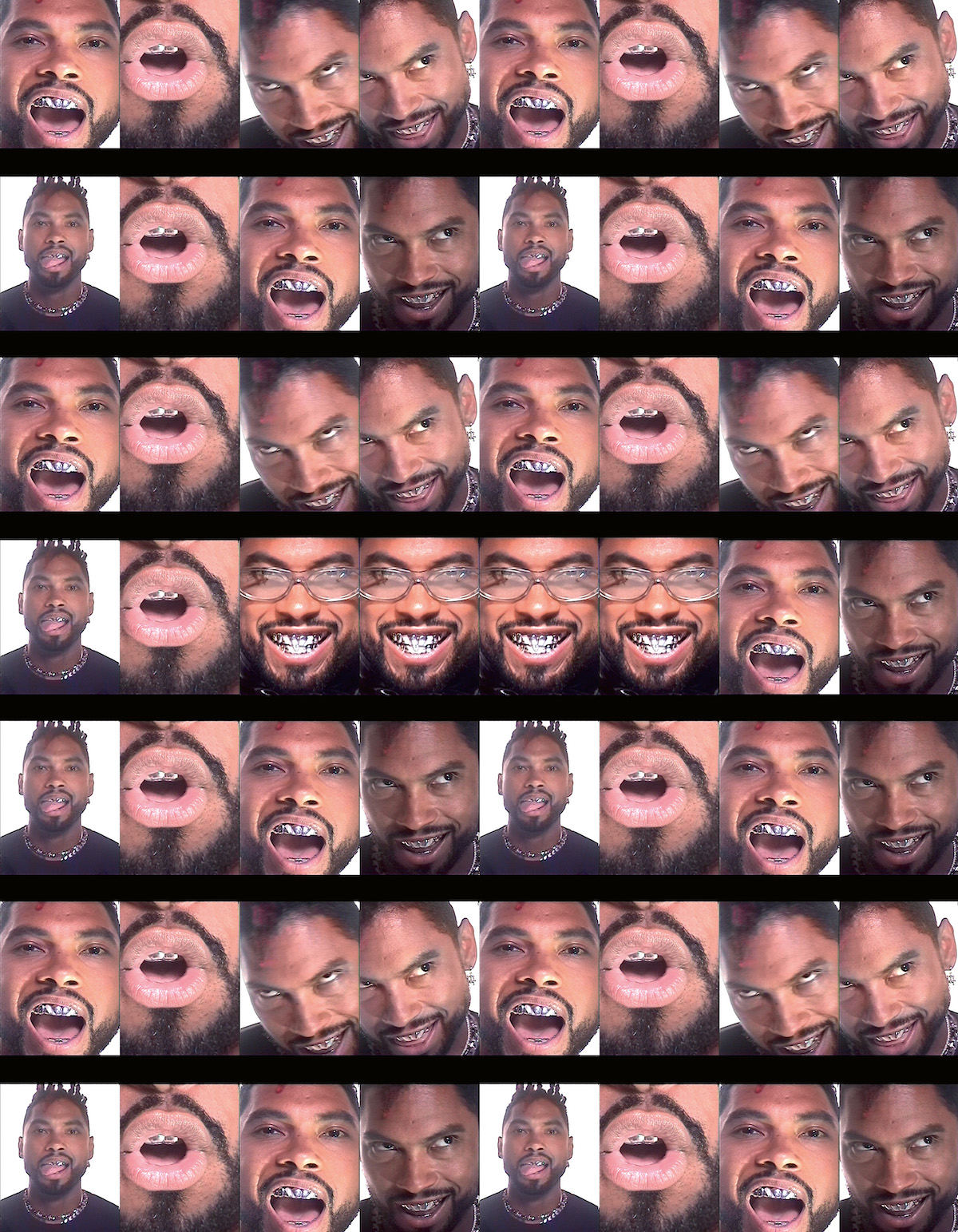
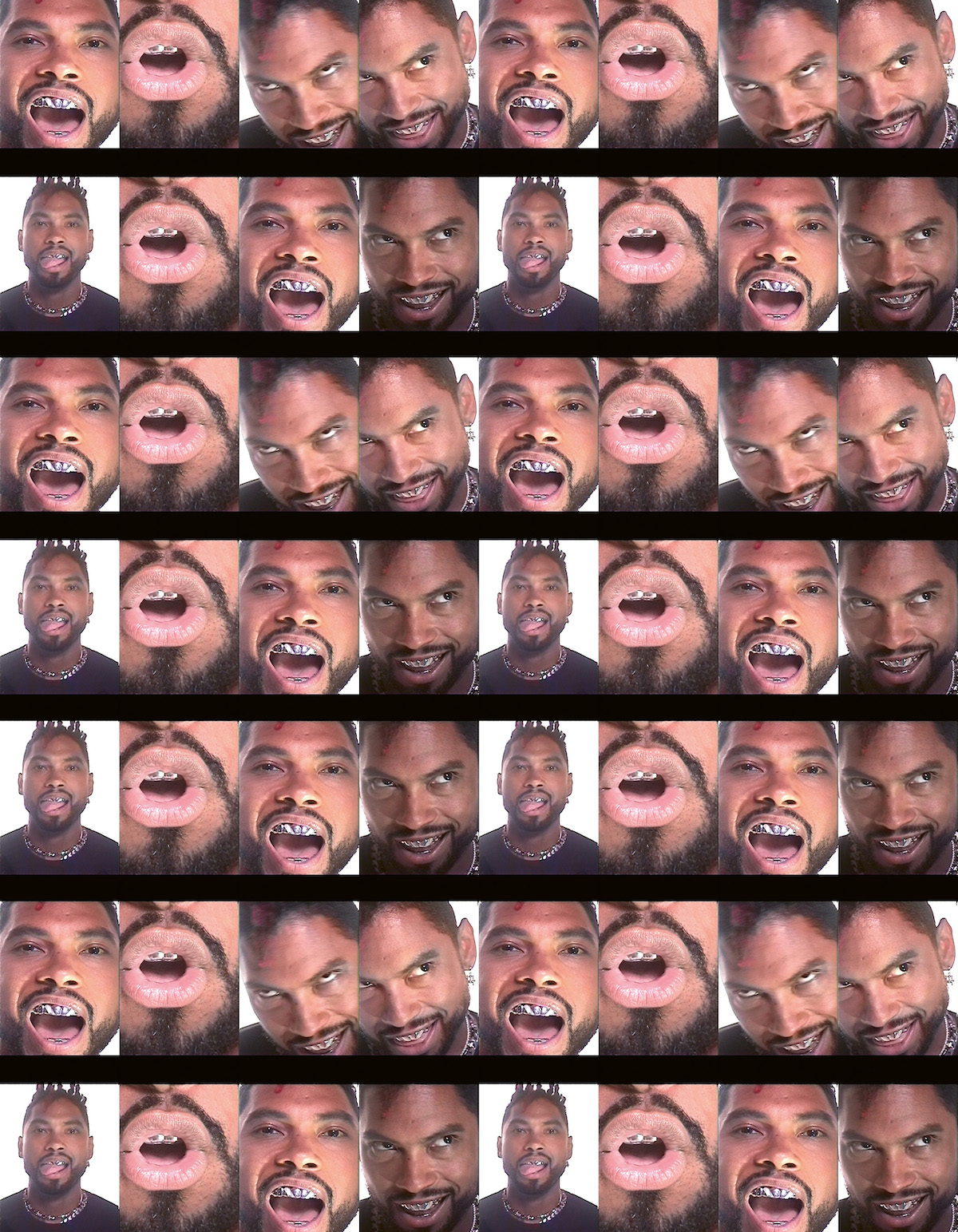
MIGUEL wears GLASSES by FLATLIST, JEWELRY is TALENT'S OWN
SR— What’s the album titled again? Play some tracks on it.
M— Viscera, which is physiologically everything in the middle — your guts. When you have a visceral reaction, it's one that you can't avoid. It's unavoidable, it's instinctual, it's guttural, and the intention of that album was to make an experience that captured the violent and beautiful nature of change. [Starts to play tracks off of the album]. That one was called “Number 9”. I think that video's going to be crazy.
SR— People are going to fuck with that one for sure.
M— The number 9 signifies completion and rebirth. That's the thematic element and song of the album for me.
SR— This might not be the intention whatsoever, but I hear some Monty Python in that.
M— Let's go. That's crazy. Monty Python goes hard. I also thought of happier references of mine, like Beach Boys — they've always been a big influence in my harmonic approach.
SR— I felt joy, for sure; there’s also some humor in it. Would you consider it the sort of album to sit down and listen to?
M— I would say that I make albums for driving, but there are a couple songs that are definitely meant for introspective moments. I also think there’s some on the way somewhere. This album is such a, “We’re en route to something,” because it’s transitory. It’s like I flipped a switch, you know?
This is the last song on the album right here. It’s called “Comma Karma” — the song is about what I hope happens when I die, really. The first line is, "You better throw a party through the weekend. All the homies. Play my favorite song. Good Thoughts, Bad Thoughts, Baby, Funkadelic."
SR— I love it. I’m sure some people are going to be shocked because it’s different for you, but that’s the point right? You’re at the point in your life where all you’re worried about is sharing your truth. 10, 20 years ago, you couldn’t do that.
M— Back in the day it was all like, “Do you have a hit record? Is this a hit? Are you making a hit?” At this point, I’m a vet in this shit. I’ve done it already. I’ve proven that I can do it and look at that, “Sure Thing” was number one again just because of social media.
SR— Yeah. What's up with that?
M— Bro, I have no clue. Who knows. The universe?
SR— Don't get me wrong, it's a great song. I actually listened to it today. Maybe the universe is like, "Oh wait, he’s about to pop right now so let’s flip this.”
M— That’s a song from my first album … Now, I am poised to continue to do what I’m here to do, which is to express — to do what feels true and trust that it will find its time and who it belongs to when it should.
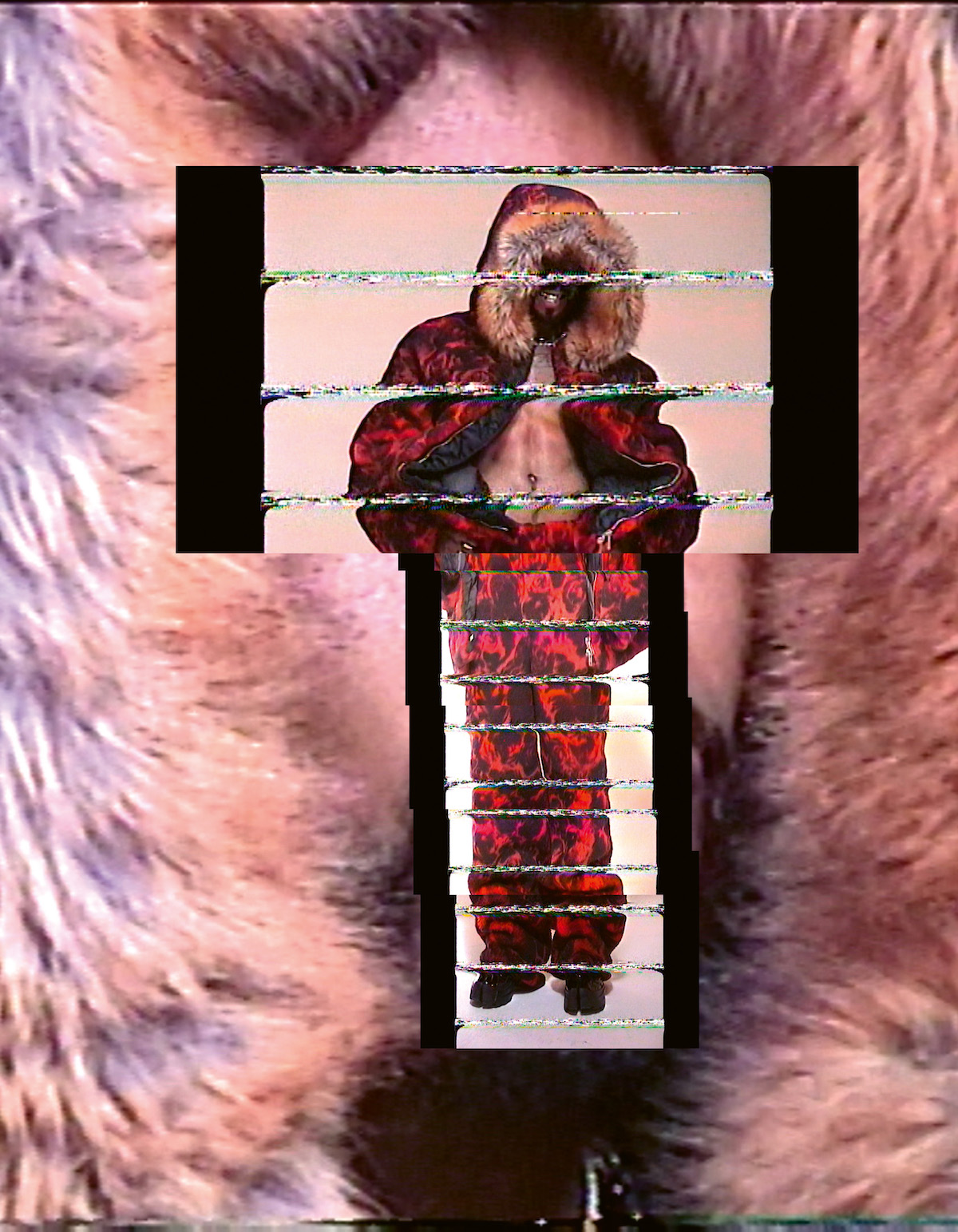
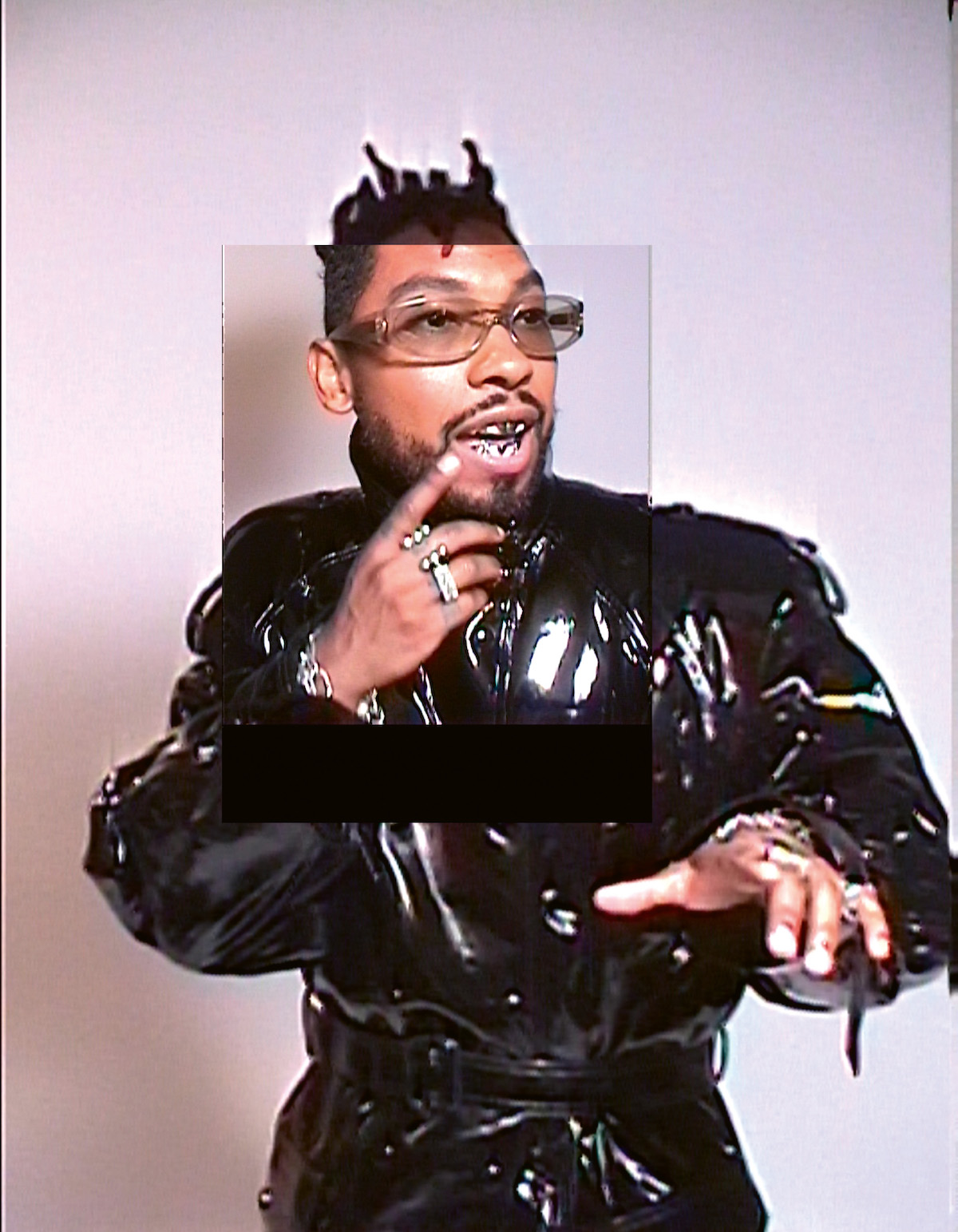
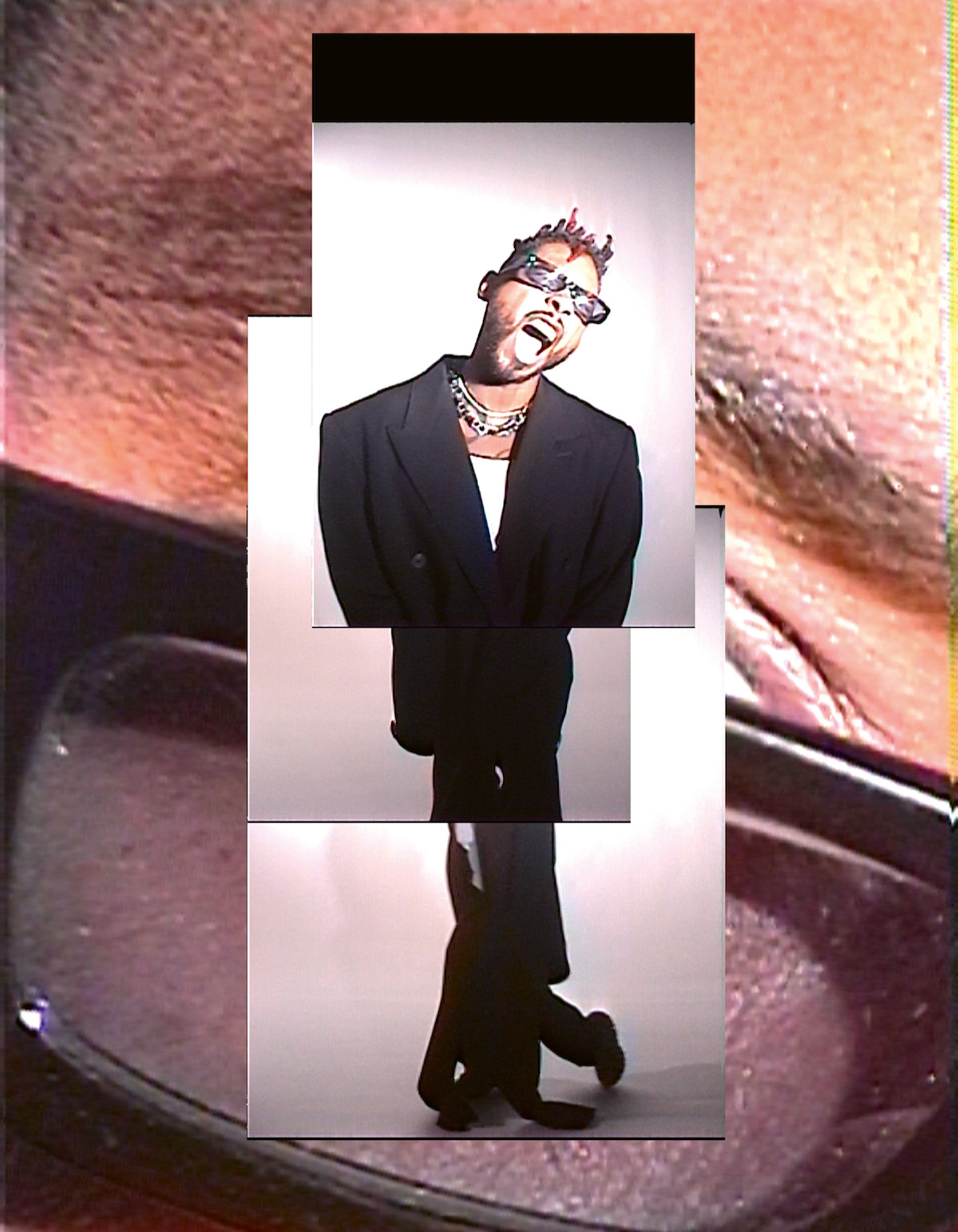
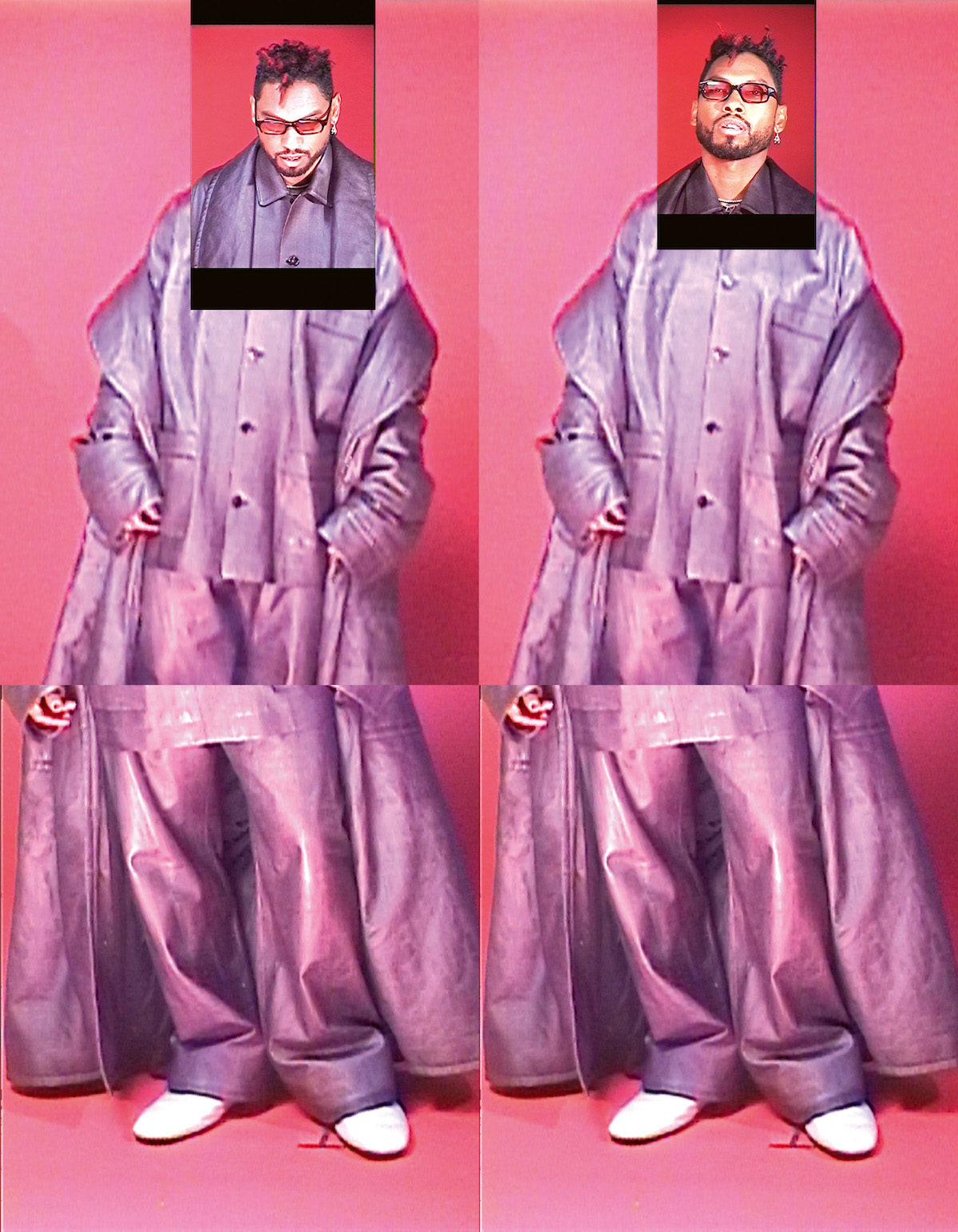
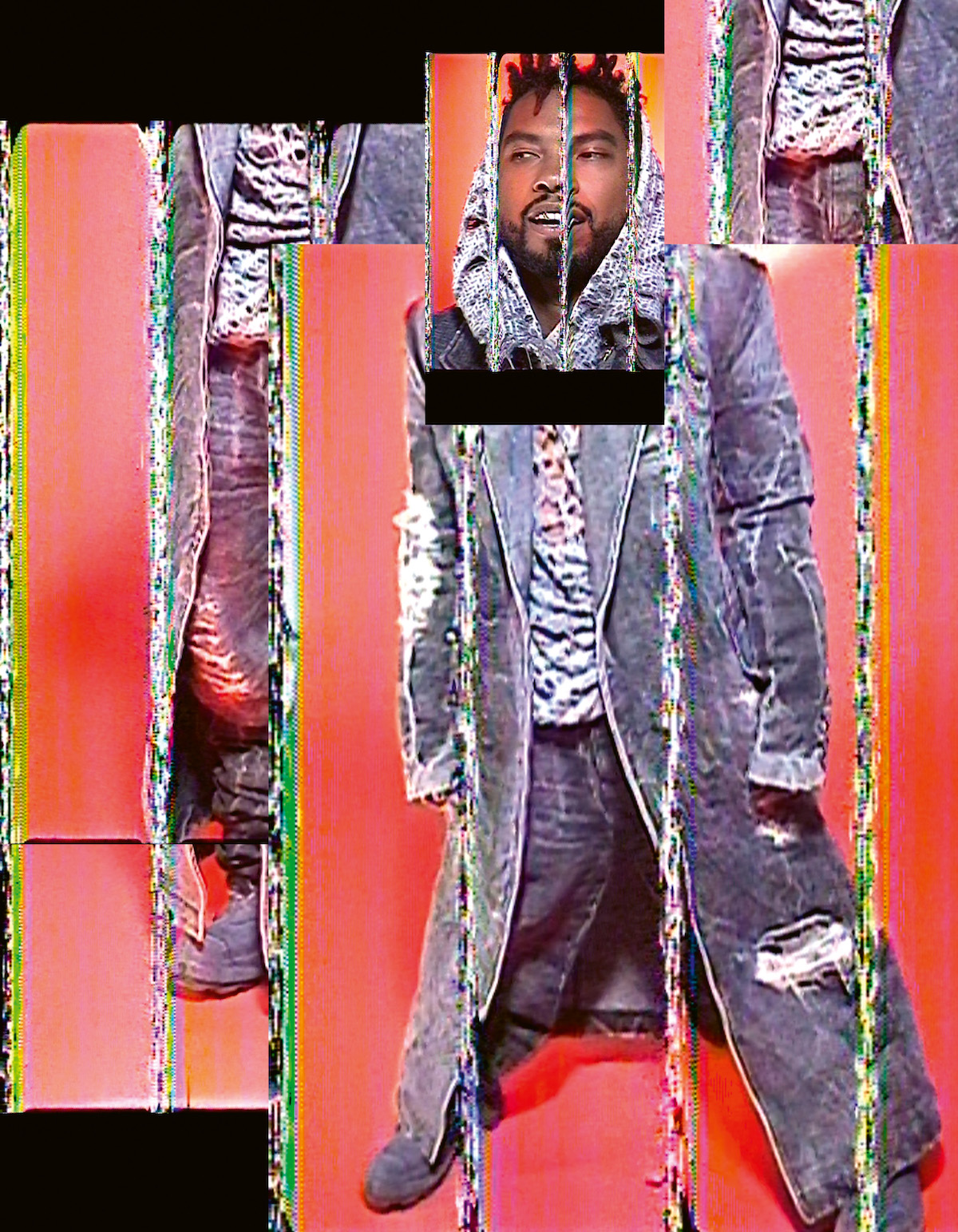

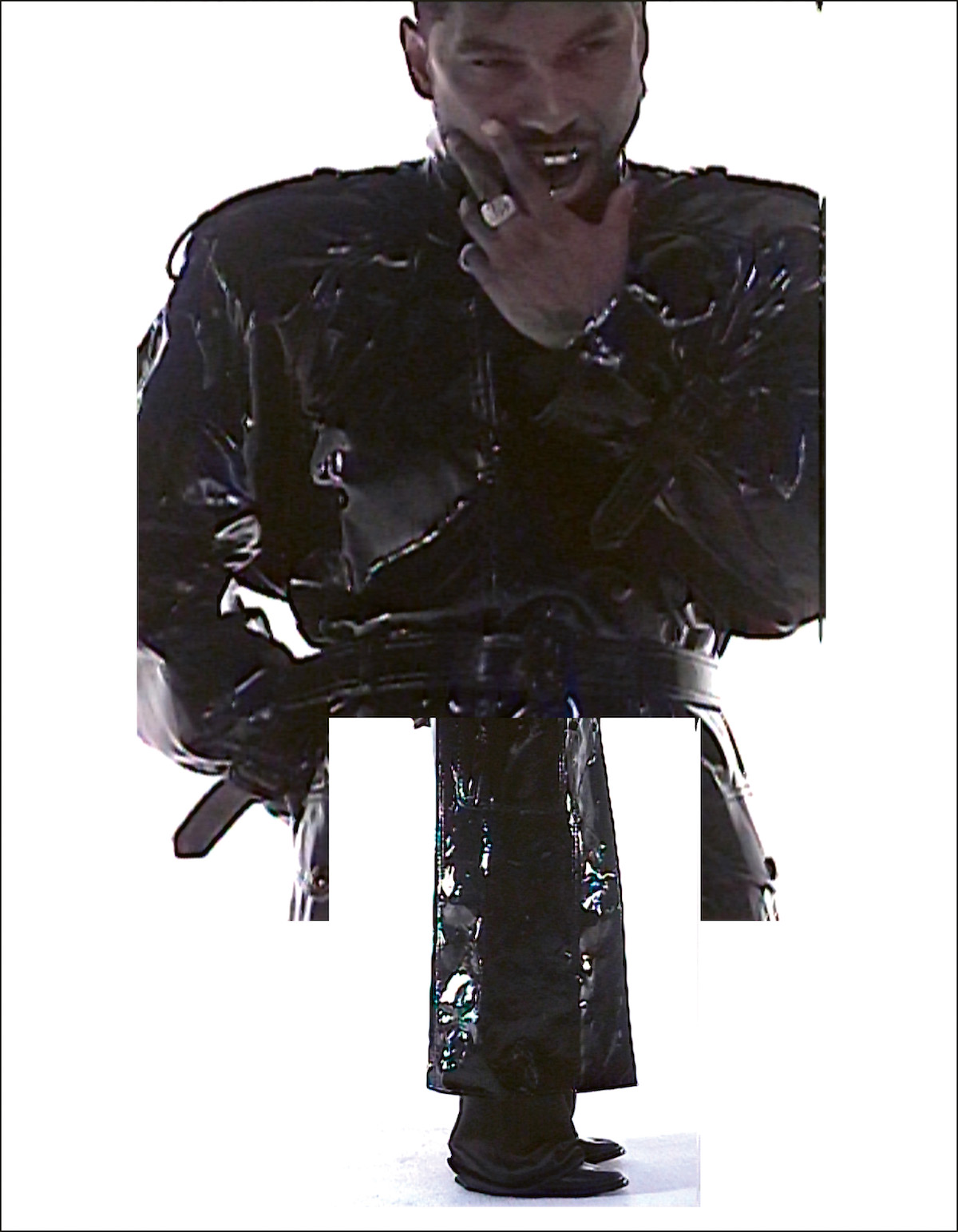
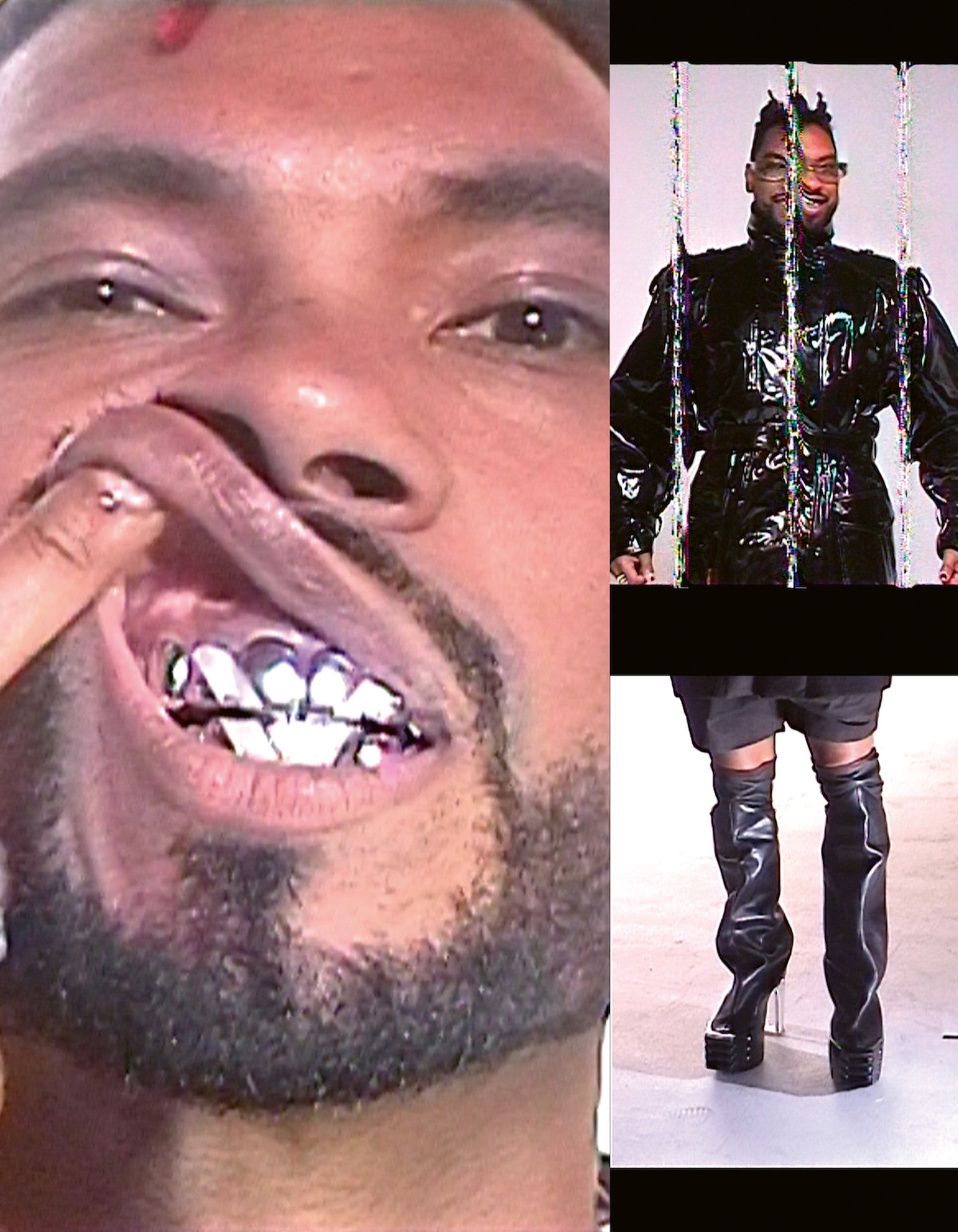
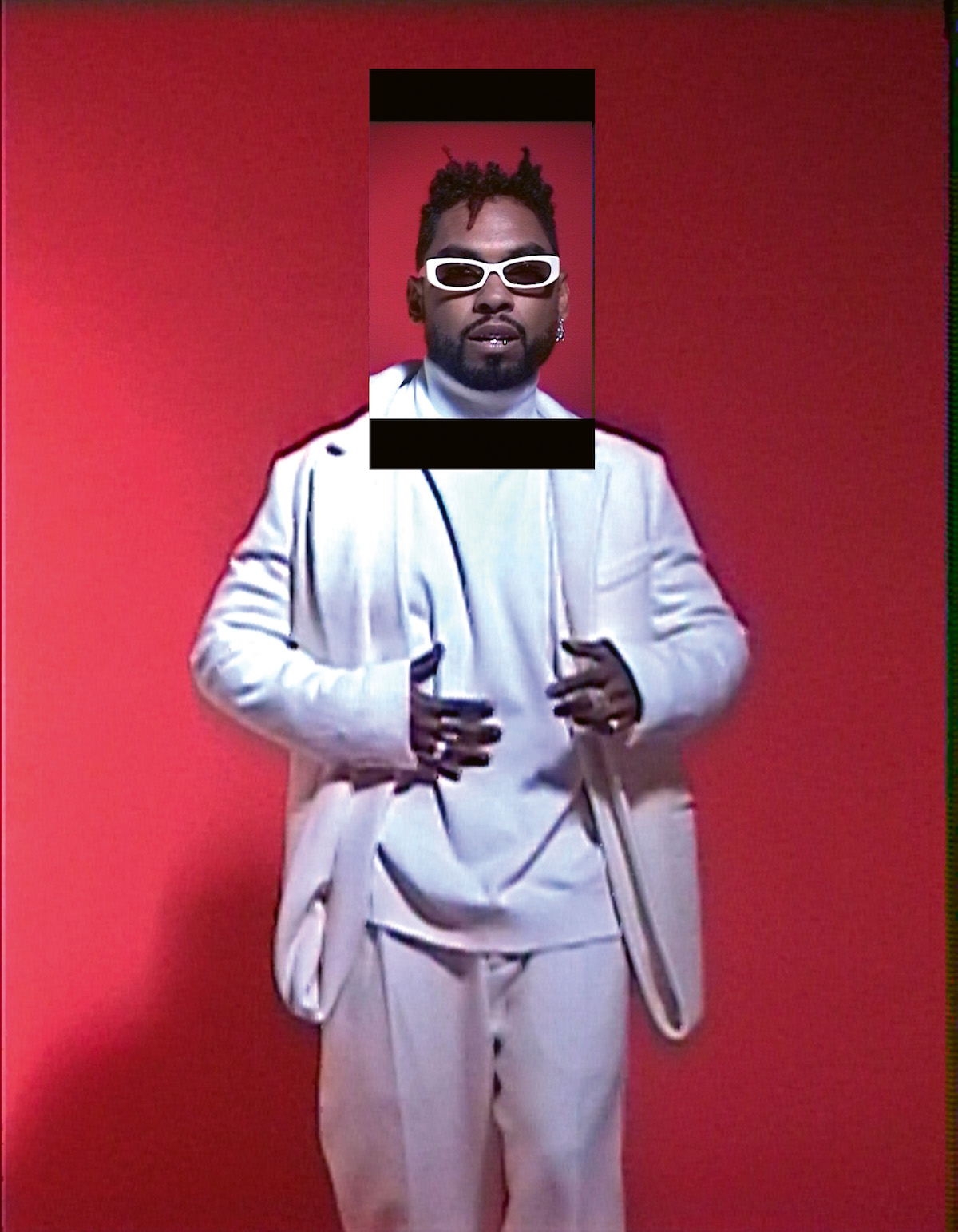
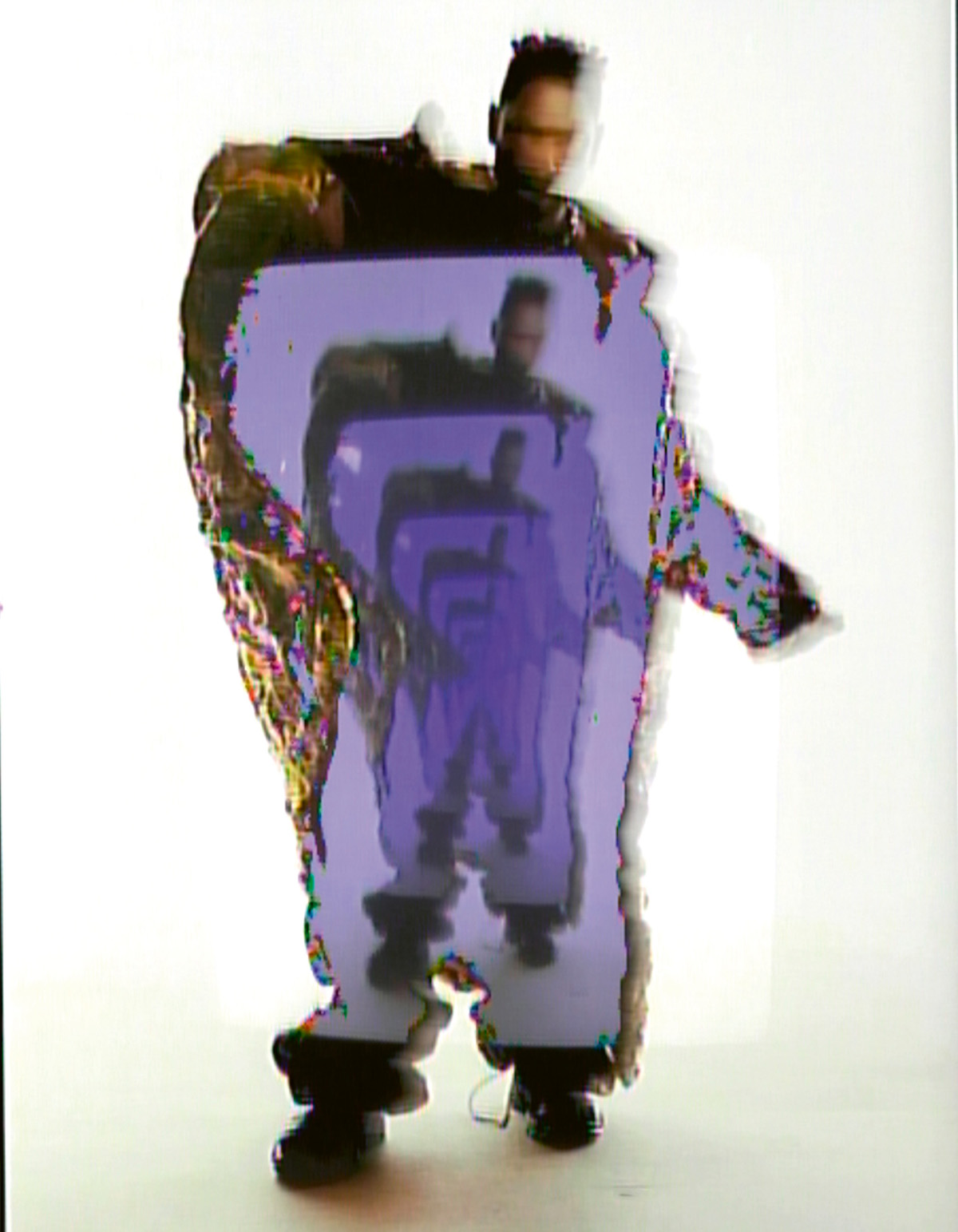
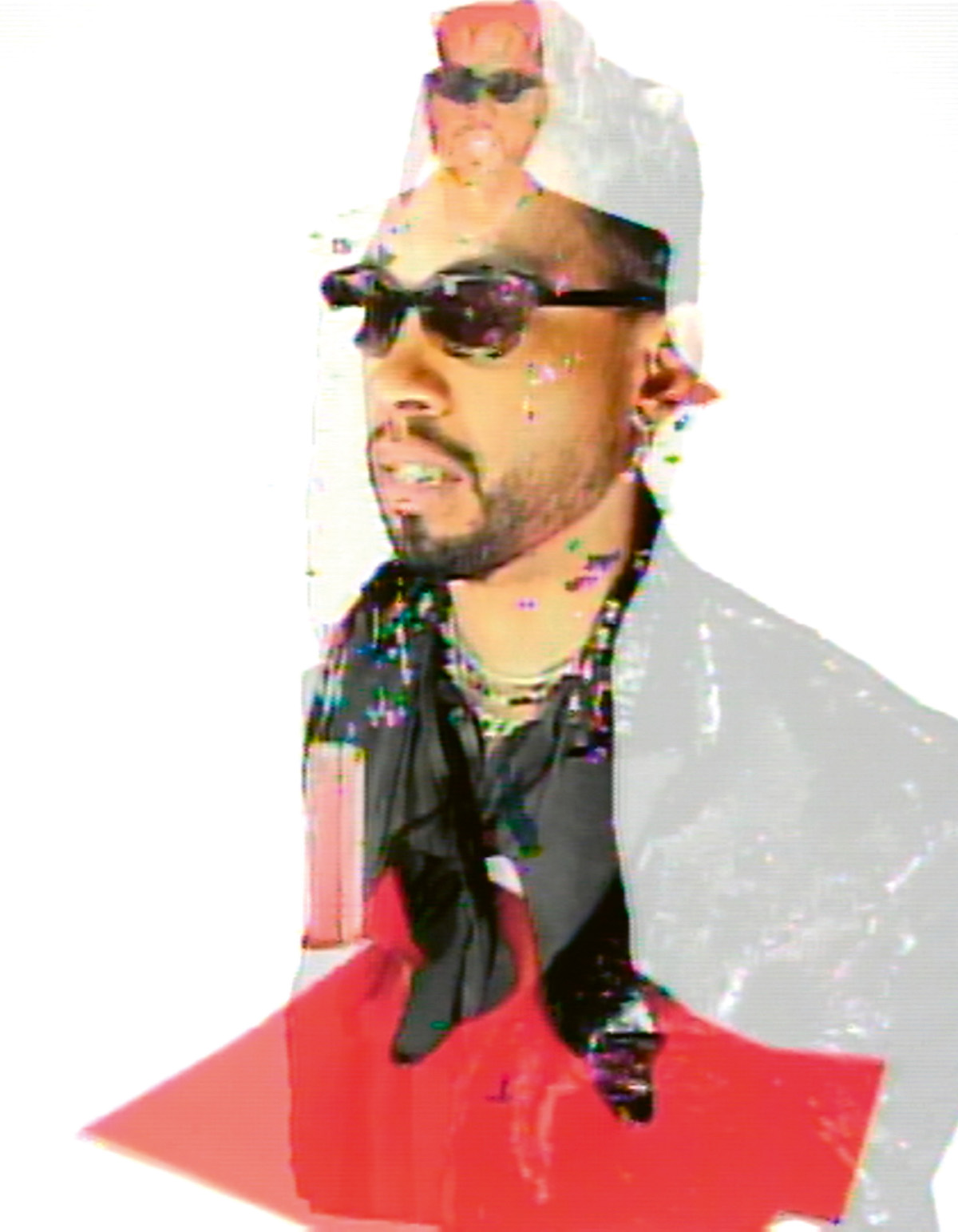
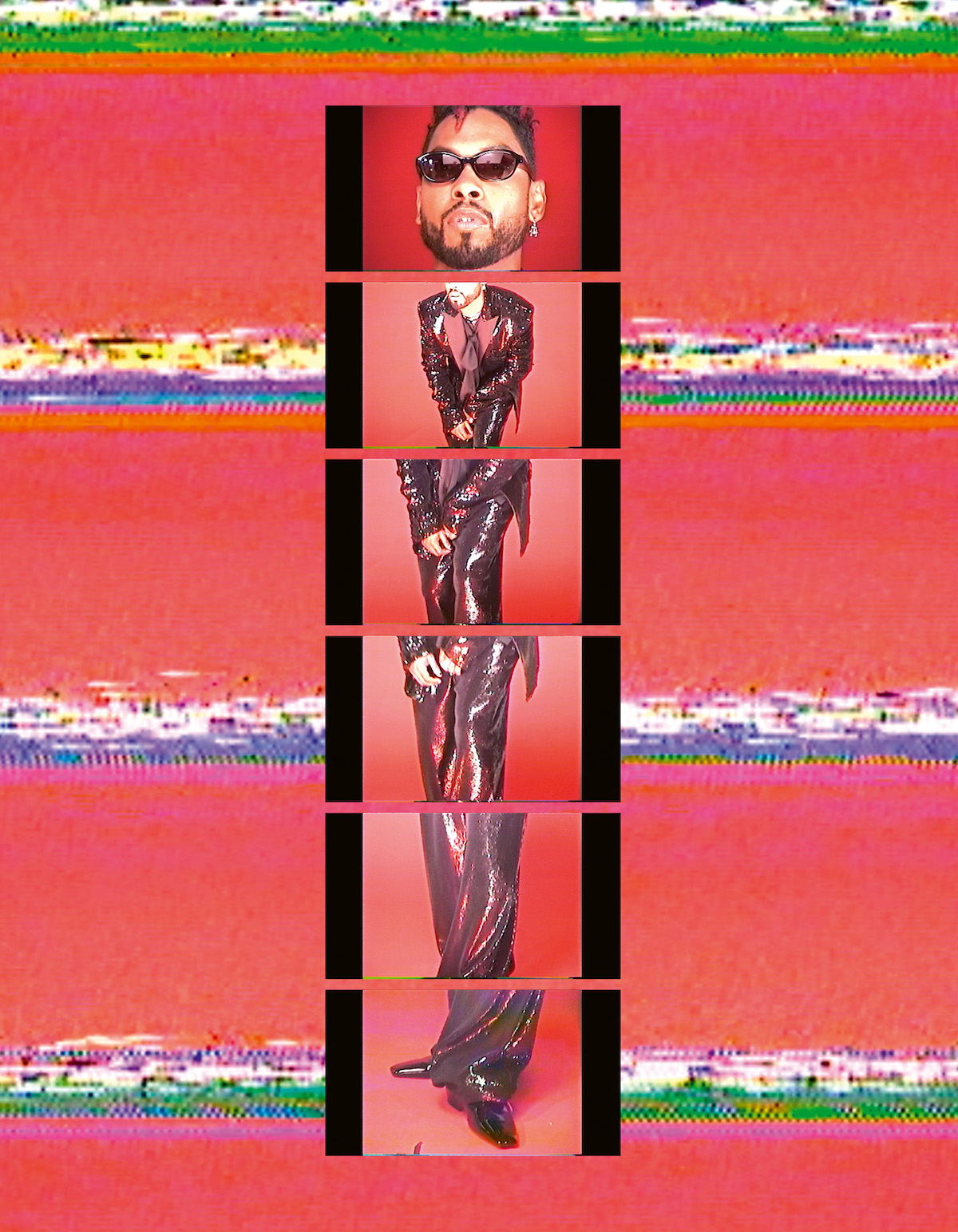
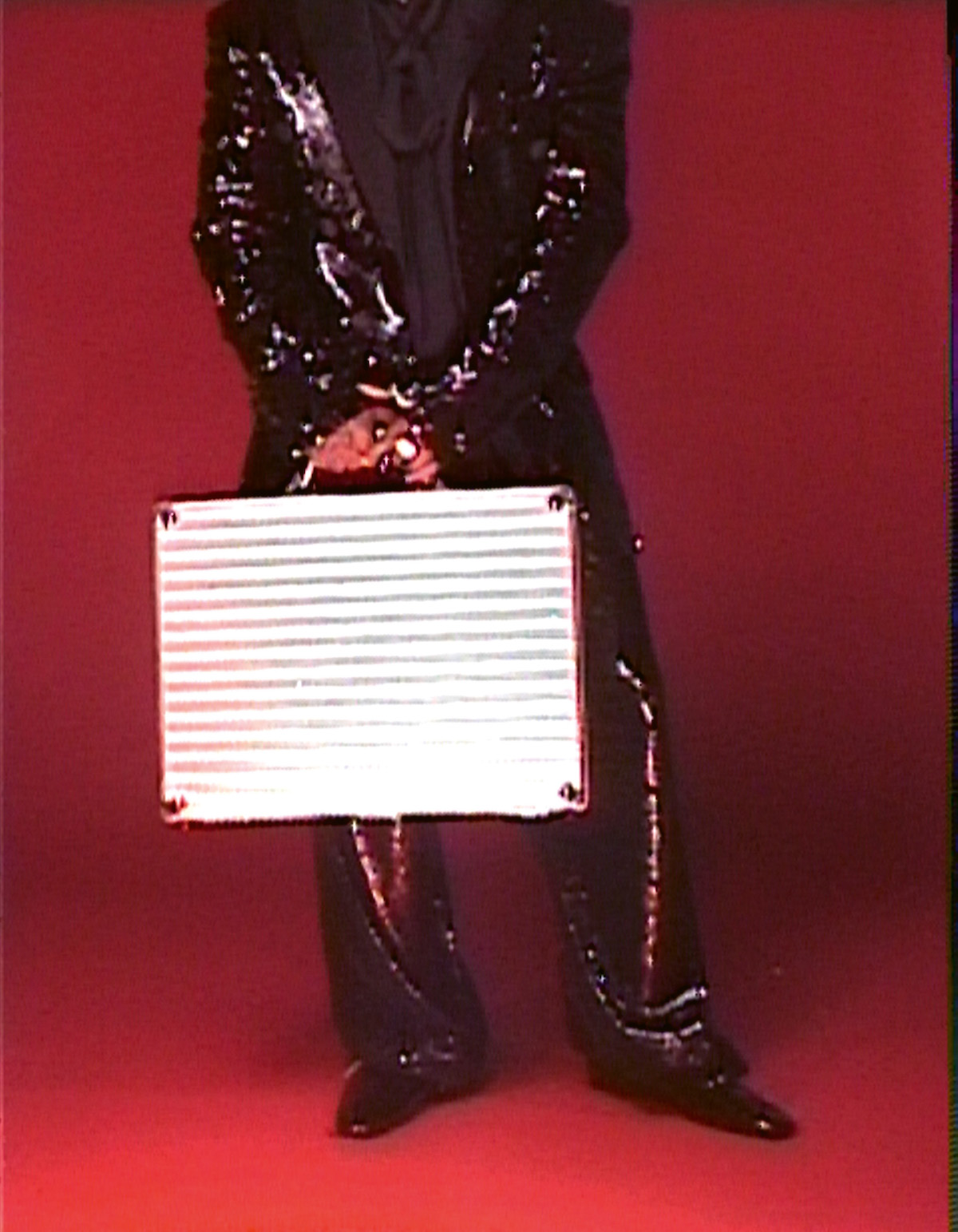
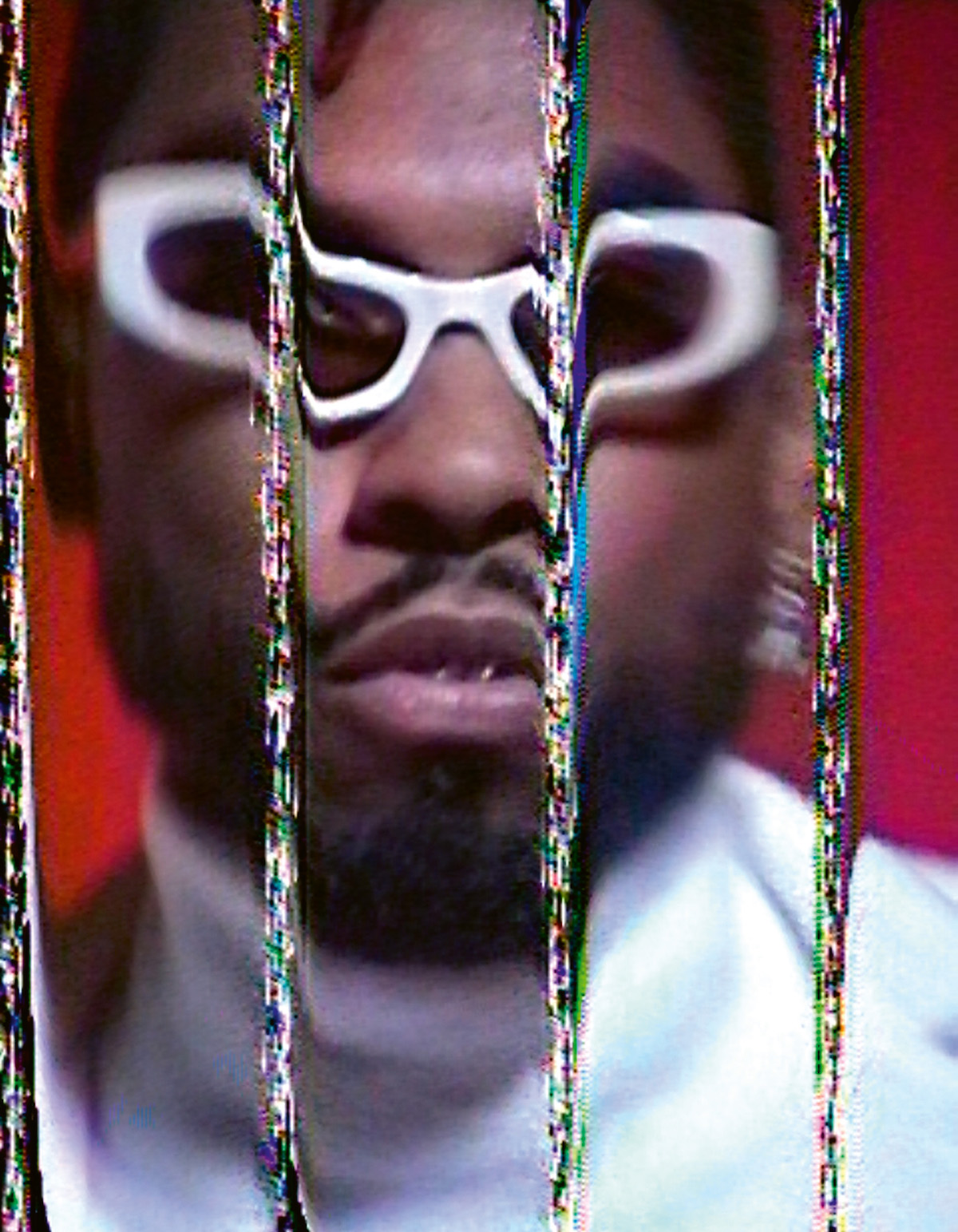
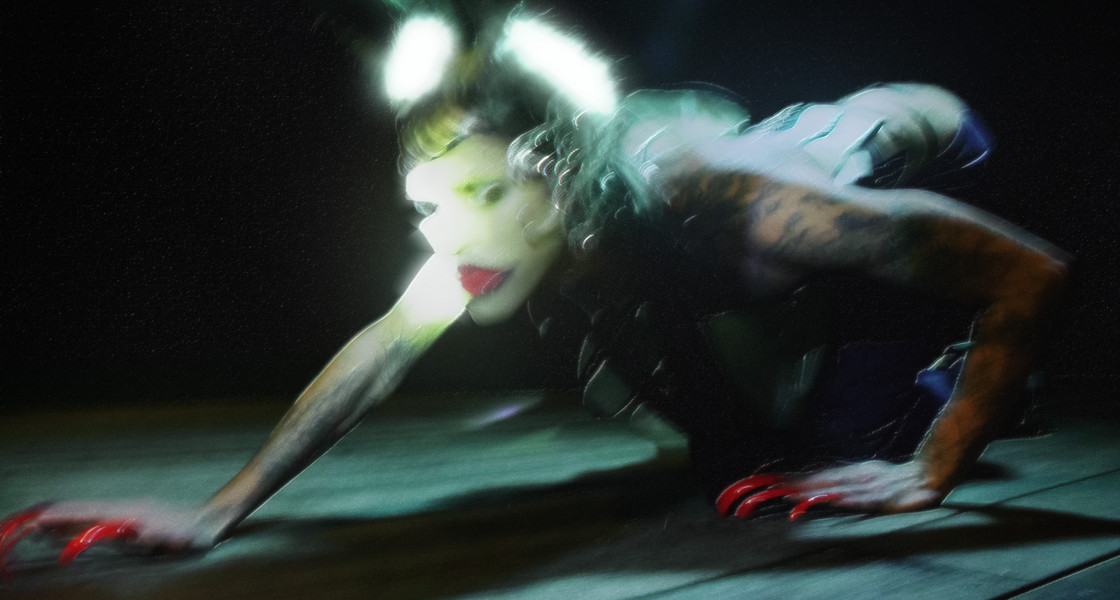
To set the tone, here's a poem by Feyd,
They wear the stars on their fingers, dusk is dawn
In their audacious world, reality falls
Blinking flashes echo from the holes to the sky
A bunny's laugh that never dies
Hi g2g! Tell me a bit about yourself. What’s your age? Pronouns? Where are you from? Where are you based and what do you do?
I recently turned 25. My pronouns are they/them/she/her/elle/ella. I am from Uruguay and Denmark, based in Copenhagen. I’m an artist, producer & DJ.
I have always been extremely aware of the sounds around me. Ever since I was very small, sound has really interested me and when I was playing around, I was always investigating what sounds I could make with different objects. When I got a little older I started playing the drums, but I kept having this extreme sensitivity to sounds. When I discovered at some point that I could use the sounds to make music with, it was as if some things fell into place for me. I felt like I had found a language that was mine and a way of expressing myself that felt right and fun and easy. As opposed to having to express myself through writing and speaking, which has always been — and still is — difficult and exhausting for me.
In 2020 I graduated from The Danish Rhythmic Music Conservatory in Electronic Composition. The last two years I’ve been DJ’ing around the world.
Can you introduce our readers to the fabulous world of dj g2g?
The world of dj g2g is genre-bending, pop culture referential, experimental and queer! Sonically I move between genres like hardstyle, deconstructed bubblegum, guaracha, nightcore, jersey, dubstep and more, with long cunty nails. It’s a world of hybrids of many origins, as opposed to being bound by the rules/traditions of one.
It’s a crucial challenge for me to make songs inspired by many different types of dance music, that can both interrupt and co-exist in the same track within seconds. I want to be surprised by the possibilities of blending and bending genres, where it makes sense but is also nonsense. There’s something about hybrid-music that makes me listen closer. When you bend the rules, it feels like anything is possible. Like when you hear 2 things together that you’ve never imagined could be in a world with each other; fx. I just started working on a song with my friend 3DMA, containing a huge amount of samples from Vine and Tiktok, but also the songs: Robert Miles' "Children”, Rihanna & Calvin Harris' "We Found Love”, Sexyy Red's "SkeeYee”, SMF's "Hahaha” and “Look At Me Now”, The Chainsmokers' "#SELFIE”, and Knife Party's "Internet Friends”. At the same time it's a blend of different genres like guaracha, donk, jersey, edm & more.
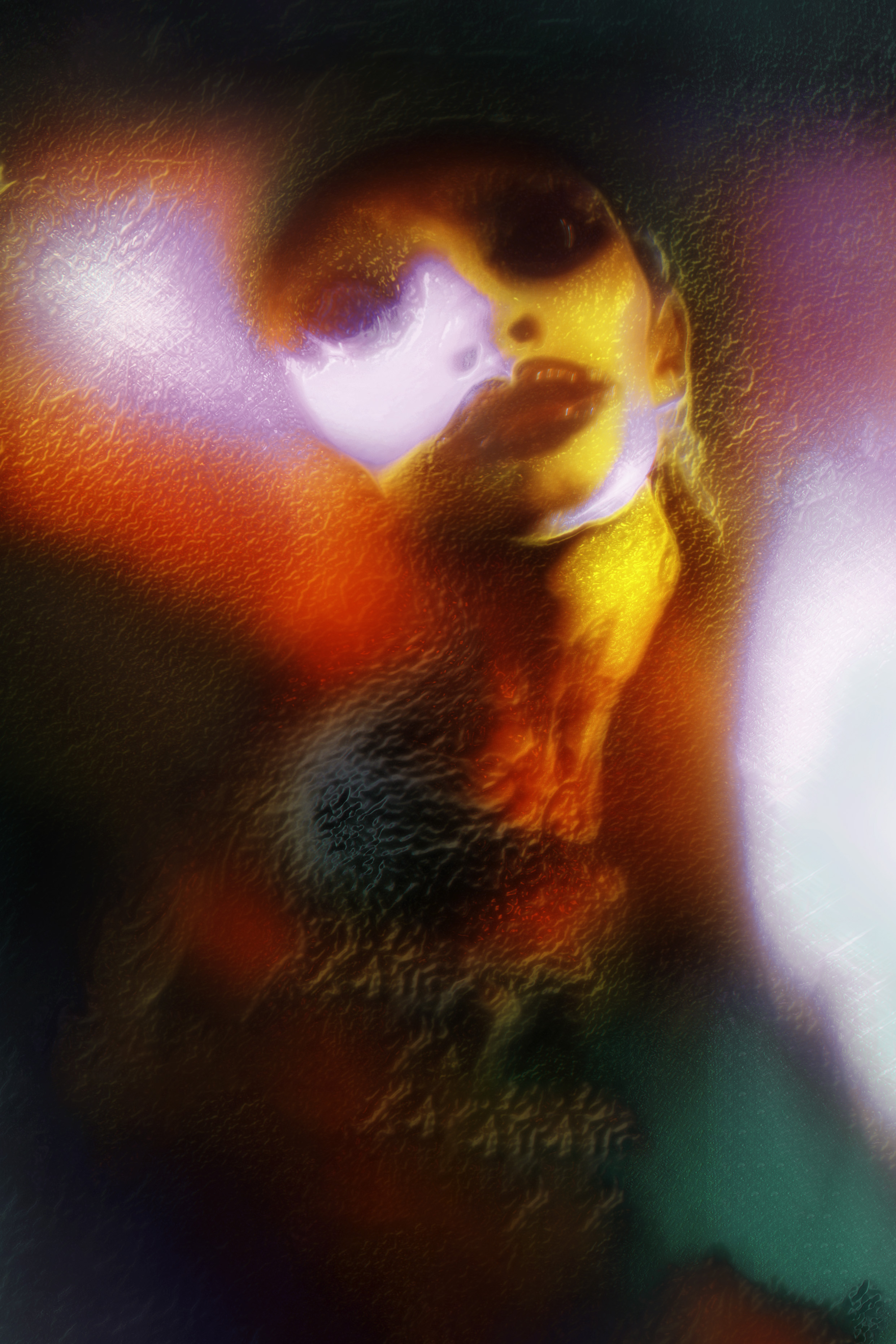
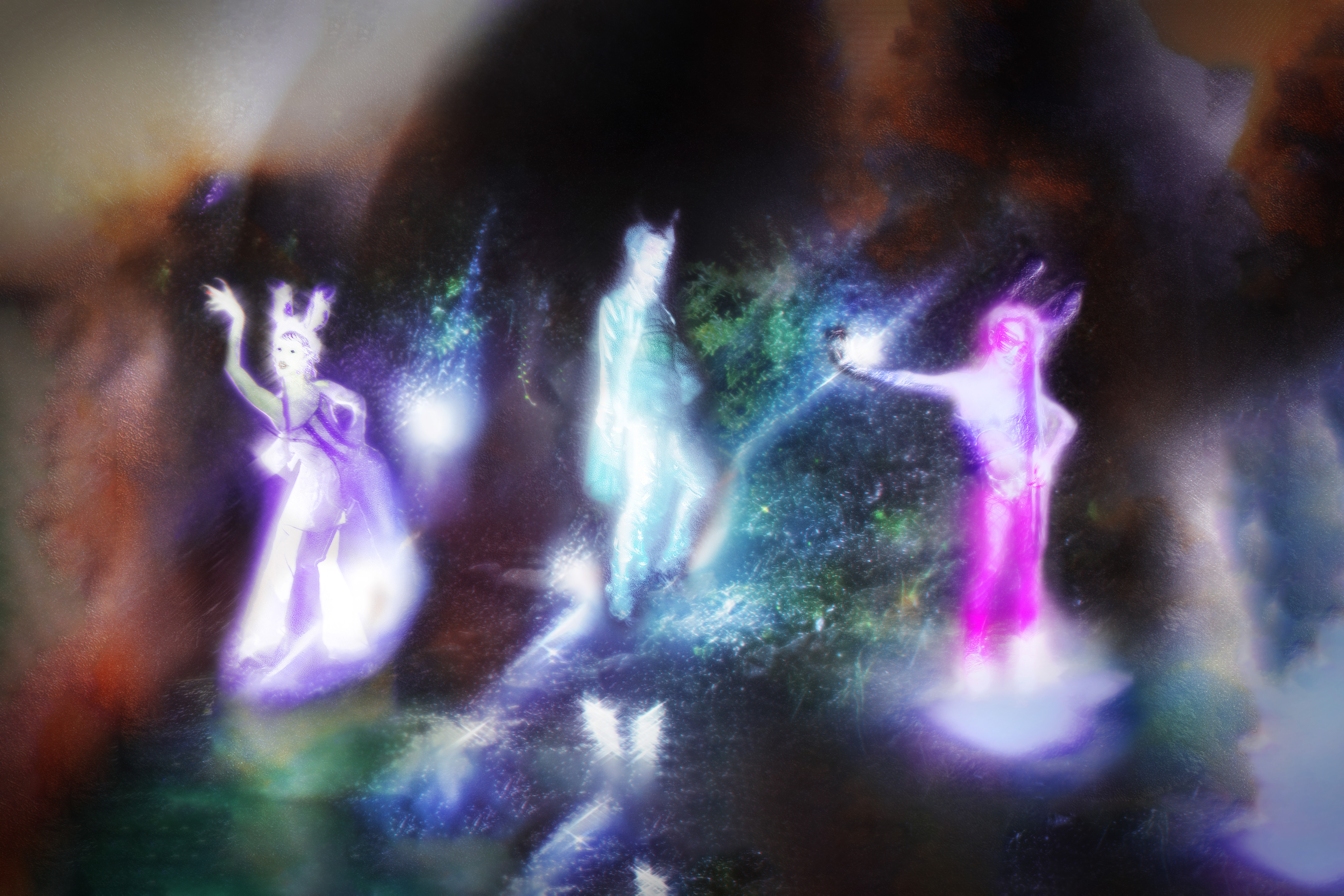
What’s the story about how u got into producing and djing?
When I was around 6 years old I remember discovering this cartoon game with different characters that would each play an instrument. The characters would be able to play a few different loops on their instrument, and then you could select and combine them to make your own little composition. When I was around 10 years old, I remember my older brother introduced me to the DAW “Reason”, where I started playing around, trying to make beats. I started DJ’ing around that age too, by making dubstep mashups in virtual dj. I had my first dj performance with my bestie at a nightclub, when I was 15. It was a bit strange because everyone was over 21.
I discovered that I love DJ’ing. And I discovered that the party can have the potential to create something expansive, and when it works, it can feel very playful and liberating.
I have expanded my practice by making soundtracks for documentaries and fashion shows, I just shared my work in a Dion Lee SS23 campaign film, and an extensive soundscape for Alectra Rothschild FW23 Runway film both during Copenhagen Fashion Week AW23. This year I also made the music in collaboration with Barbro for “Trans Hero”, a Danish documentary that explores gender and identity seen through the eyes of trans children and children of gender diverse parents. Trans Hero is directed by trans and non-binary directors Sol A. Wendel and Evo Smilla Sidney.
You have released music under various names like, dj gossip & dj g2g — are there any previous and/or upcoming reiterations/names/identities?
I was working in Logic for a few years, but quickly switched to working in Ableton, after starting to collaborate with my friend who worked in that software. I became really curious about all the different tools it has. In 2019, I released my first and so far only album “Árbol Bajo Tormenta” on the Copenhagen based label Anyines. I don’t really make time for working on this kind of music anymore, only rarely every now and then, but experimenting with making soundscapes is a process that is very meditative to me. I have a lot of finished projects laying around, which I might release sometime, maybe under a new alias.
“dj gossip”, is a silly project I started in a time where I was releasing less fun music as dj g2g than now. I created dj gossip to share those few silly funny edits that I didn’t feel would match my other releases as dj g2g. Now, I would say that dj gossip has merged into what dj g2g is.
I just started a nu-metal, k-pop, trip hop, dark ambient band under the name CRYSCREAM, but we are rarely in the same country at the same time, so we are collaborating by sending recordings back and forth, and will finish the album soonly. I can’t wait to share this with you.
I constantly have a lot of very different projects going on, in all sorts of genres. So much stuff that I don’t know if it will ever see the light.
How did you start working as g2g?
When I studied at RMC, many of my school-mates were older and already touring and releasing great music. It put some pressure on me as everybody around me was already doing the most, which made me feel insecure. One day I made an edit of Erika de Casier, who was my schoolmate. I uploaded the track and came up with a random alias, which has now become known as dj g2g.
I was very surprised by the positive attention that this silly edit received. It gave me some confidence to keep working in that direction, following my intuition and playfulness.
Also, g2g means “got to go”, but you can say whatever you want. I like that it can have many different meanings.
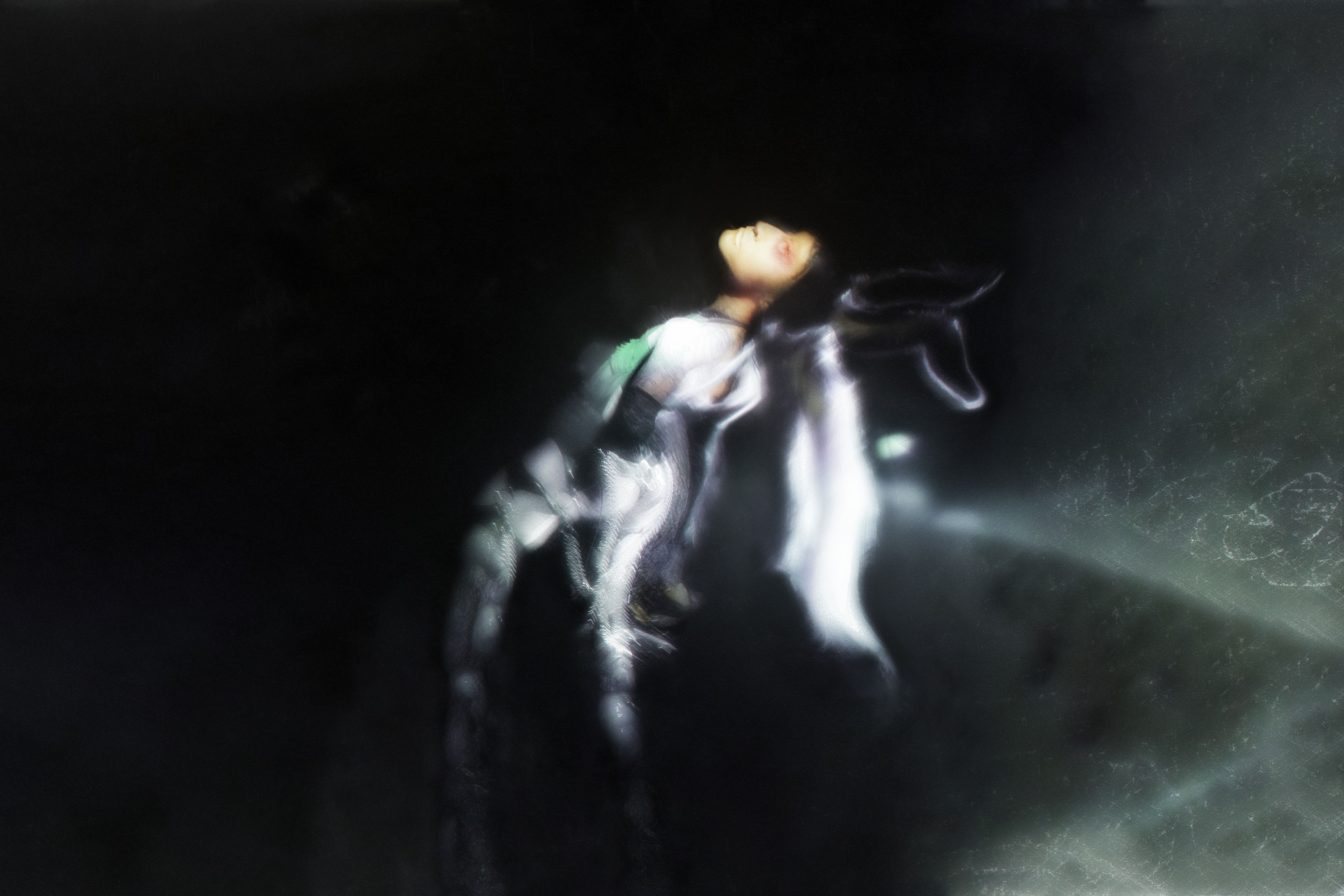
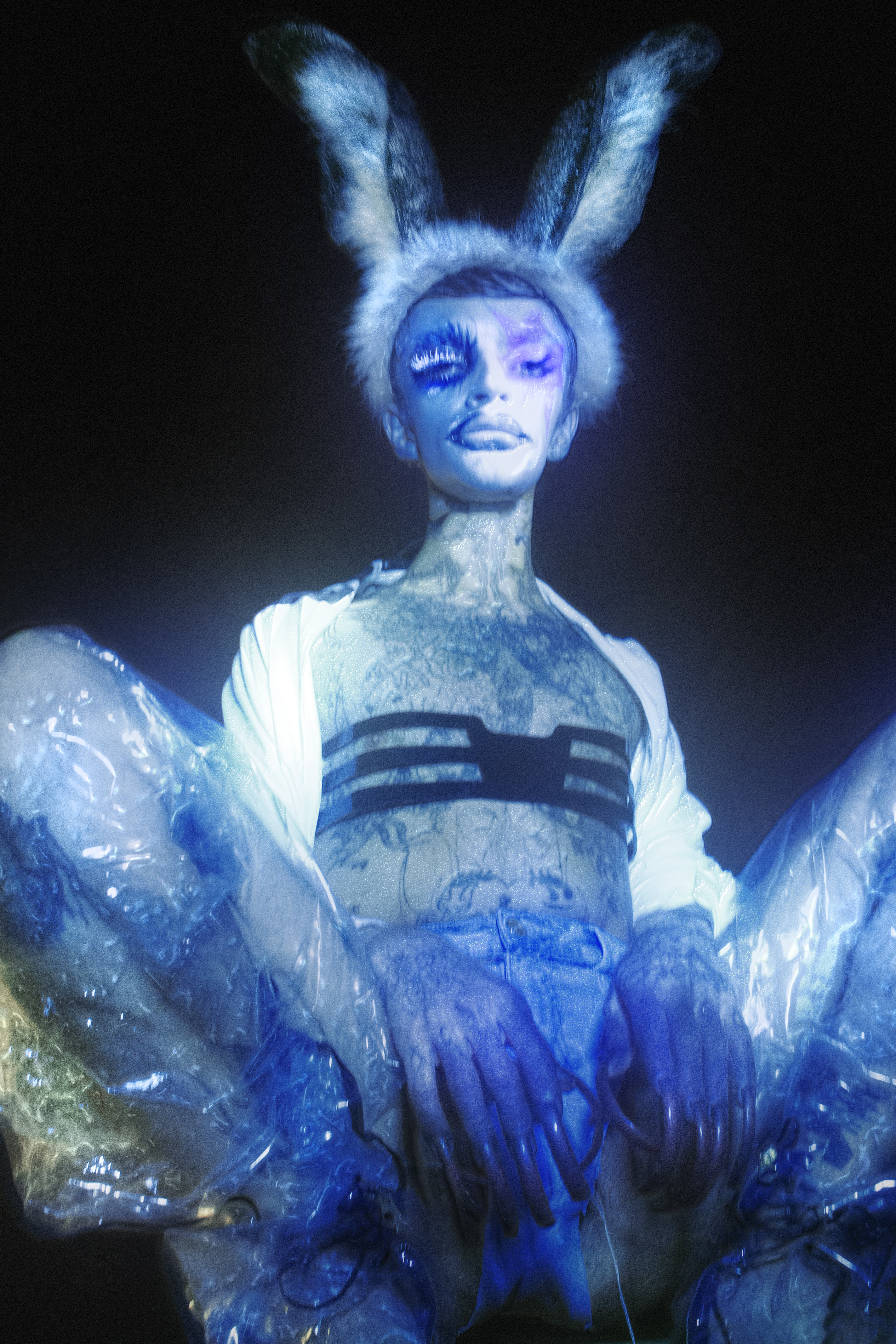
How does your different heritage affect your sound?
My father is a composer and musician — he mainly plays music with roots in the Uruguayan folk tradition. I was introduced to South American music in all sorts of genres from a very young age and it has made a deep impact on me.
Living in Denmark, so far away from Uruguay where most of my family is from and are based, makes it difficult to keep a strong connection with that part of my heritage. The last few years I’ve discovered that I can actually find ways to connect with my South American heritage by the music I am making.
How does fantasy play into your world?
I’ve spent so many hours of my life playing fantasy videogames, like World of Warcraft, which I was extremely addicted to. The social aspect of online games has always been very important for me. It was literally my second life, meeting with my guild every day, clearing raids together. I love playing games that are visually appealing to me, though World of Warcraft in my opinion is not as beautiful as many other games, like Final Fantasy, Elden Ring, Dark Souls, BioShock, Genshin Impact, Vindictus, Scarlet Nexus, Bayonetta and more. I also love weird indie horror games that are kinda ugly looking, but extremely creepy, like Aka Manto, Fears To Fathom, The Bathhouse, Night At The Gates Of Hell, & more.
I love sampling sounds from video games in my songs. When you play WoW, you walk around in this open world and collect all kinds of strange little things. Mining ore, stones and gems and like a wizard you mix potions and elixirs, you dye thread and clothes, you cook, forge, etc. In the same way I do that irl with sounds to create songs. It can be from a Tik Tok, stepping on something, sneezing in a specific way, pouring up something in a glass, talking in their sleep, a cat meowing, a conversation I overheard on the subway, the specific way a bass is sounding in a song, rain and thunder, but it’s not necessarily only sounds, it can also be something I experience, something I see in real life or inside a screen, anything really.
For me fantasy and transness are inseparable — how has your transness affected the way you create music?
In a way, my music has gone hand in hand with my exploration of my own identity - the beauty of it is that it can always change, that nothing is fixed. I’m against all binary systems, in the classical approaches to music, DJ’ing and how gender is traditionally performed. Gender is made up, so everything is made up! You can be your wildest fantasy.
Who do you have in mind when creating dj sets, producing — are there things you return to again and again — if so why?
When producing and DJ’ing, I want to explore the tension between meeting the crowd's expectation and the element of astonishment, when something totally unexpected happens. I want it to be fun and playful.
Who and what inspires you?
I get super inspired by traveling around the world, being invited to meet cultures, people, and seeing artists perform. Working with you, Alectra, inspired me and gave me an opportunity to revisit many sound-pieces that I have created previously. To give them a new perspective through the lens of a fashion show. It is exciting to bring in new types of music that fits your universe, and sonically create the same textures as your collection.
That’s really cute to hear, I feel the same about you. I wat to know — what’s on your bucket list?
To sing!
Do more live streams of gaming and music-production (& other fun things!)
Playing at Tomorrowland festival. It would be fun to listen to my music on their soundsystem and watch a huge crowd that dance like little ants
Compose the next Silent Hill OST
Create a song with Skrillex
Feed a dragon!
Is there any specific party you are dying to perform at?
Not really a specific party, but it’s important for me that organizers and guests are aware that work has to be done to make the party a safe space, before you can have fun. I mostly enjoy playing smaller intimate parties where the crowd is close to me so you get to feel the magical synergy between the music, the crowd and myself!
What have you been listening to lately? Whats ur fave trax at the moment?
Here’s a quick mixtape I made with my favorite trax a the moment, just from the top of my head. These are songs that make me cry, songs that make me dance all night, songs that give me confidence, songs that make me wanna ride my bike really fast, songs that make me calm, songs that just hit the right spots, songs that i can listen to forever without getting tired.
What music or artist changed your perspective on music and creating sound?
When I was a child, my best friend’s older brother was the biggest Slipknot fan. I started listening to Slipknot and wore all their merch. Everytime I visited him, his dad was always listening to The Prodigy, Arca & Aphex Twin, while cooking. In hindsight, that obviously made an impact on my music.
In Seoul, I became obsessed with playing this Japanese arcade rhythm game called Wacca, on which I discovered the artist Laur. At that moment I was already experimenting with genre bending and blending, but Laur definitely gave me the courage to go even more chaotic.
Otherwise, from top of my head, Sophie changed everything for me. And Ryiuchi Sakamoto too.
What makes you the nerdiest about music?
I can work on music indefinitely. I can sit and hyperfocus without stopping forever. So I guess everything about music makes me the nerdiest? But yeah, finding the balance between giving people what they want and fucking them up with my music ... like how far can I take it? How many vibes/genres can I blend without losing it? How many references can exist in one track? Trying to answer these questions makes me extremely nerdy about producing and dj’ing.
Being neurodivergent, music is one of the only places I can actually focus my attention to one thing only.
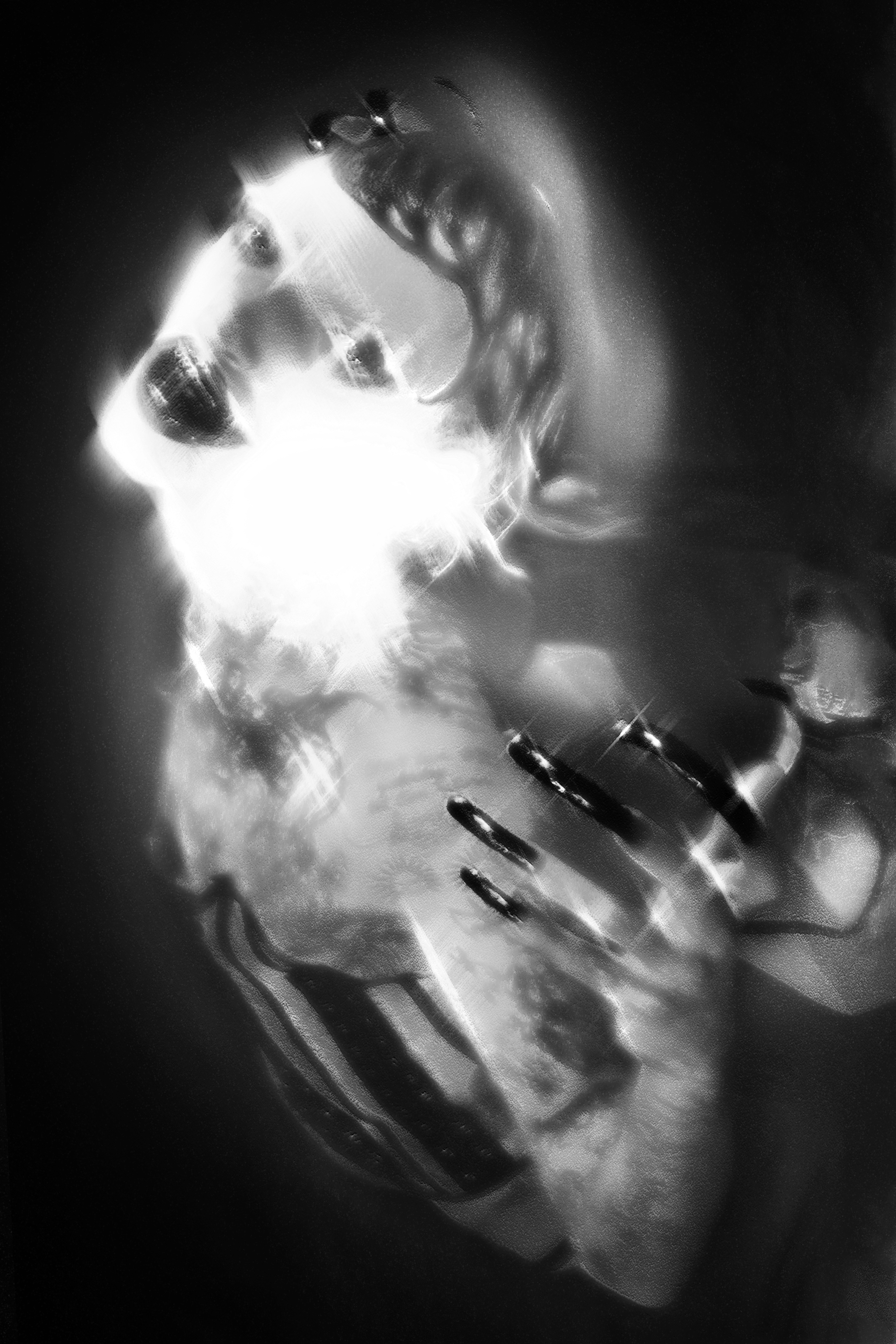
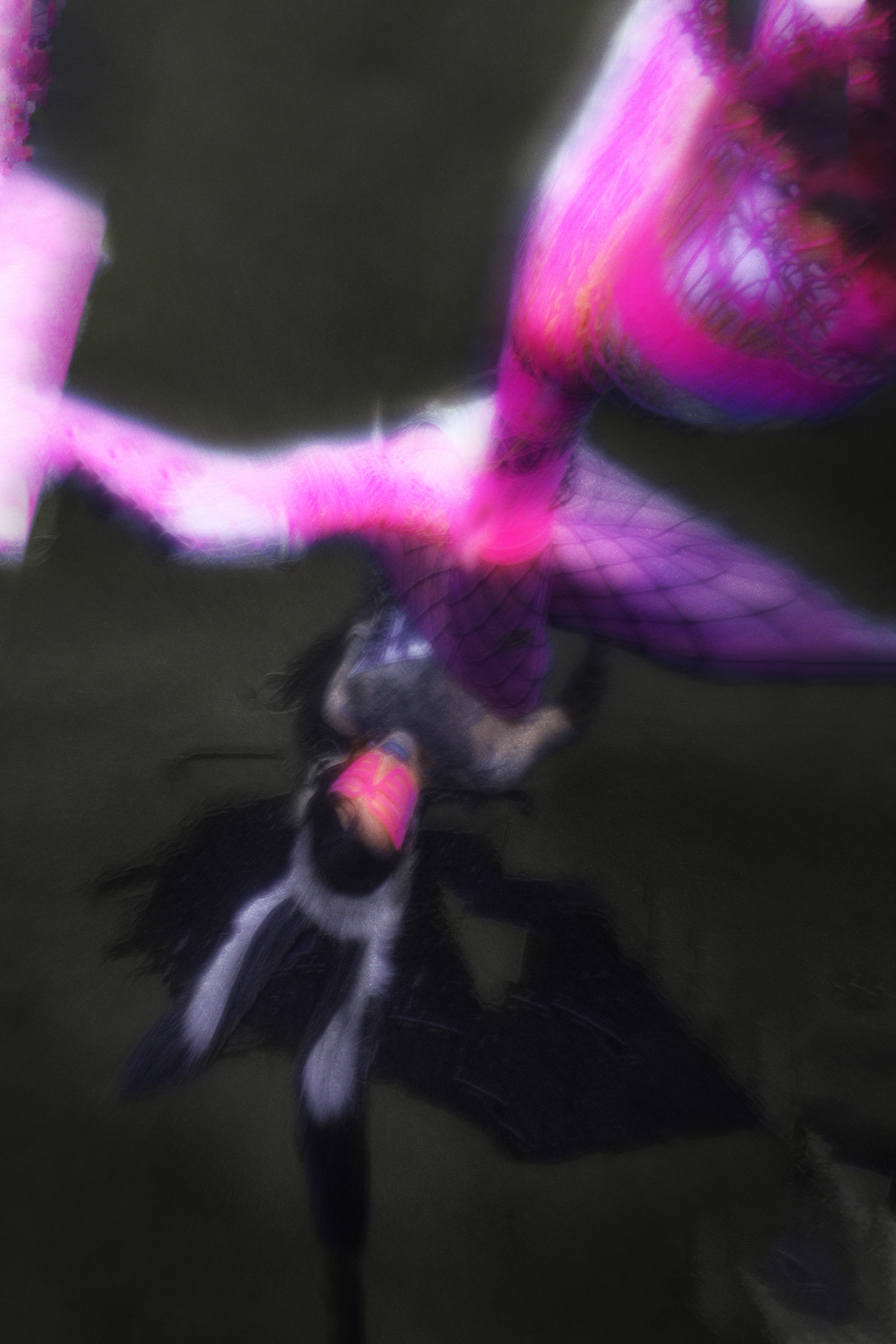
I want to talk about collaboration a bit. We have worked together now numerous times, But i want to ask how you approach collaborations with different artists? How do you connect with them and how does a collaboration work for you?
For me, entering collaborations is a way to get fresh ideas and input. And a way not to get stuck in a certain shape. I often feel much more inspired when I work with someone because the creative process becomes a living dialogue. If one has stalled a bit or gotten a bit stuck, the other might suddenly come up with a good idea that solves the problem, and in that way you keep each other going. The fact that there is another person involved, makes it possible to take the project into more unexpected directions.
I get quite curious when I hear some music that catches my attention — and I often connect with artists who I have never met before. Sometimes I only know their music from the internet, but nothing about their real identity. And it can be very inspiring to just sit with their stems and see the process unravel technically contra my own! Some of them I have known for years online before I actually meet them in real life. Some have developed into close friendships.
You have worked with Ryong, Smerz, Erika de Casier, Zutzut, Estoc amongst many more — what makes for a successful collaboration for you? And are there any collaborations you would like to highlight as an example of a great collaboration?
A successful collaboration is when you experience a good and fertile process! When you have a feeling that the collaboration has produced something that is bigger than what we could produce individually — then you know it has been successful!
Ryong is my bestie, and my favorite b2b dj partner. We have also made songs together, and it has been extremely fun. We will release something we made together a while ago, and we are definitely going to collaborate soon again.
It’s great to collaborate — specifically with friends! For this editorial we collaborated with Feyd Angeles who both art directed, shot and edited this fab editorial starring you wearing only Masculina with glam by our friend Salem Dye — how was it to work with Feyd?
It was very free and playful and very nice to work with someone who really has a fire for what they do. They have many ideas and they are very attentive to how I was feeling throughout the shoot which I appreciated!
It was cute to work in such a lowkey way between friends, which also made it a very long shot because we had a cickle for a cackle!
One of the inspirations behind this editorial is Final Fantasy 12: Zodiac Age’s Pirate bunny/humanoid; Fran. Tell me what inspires you when you get dressed?
I take inspiration from many different things, often just from things on the internet. Sometimes I like to look like game characters. Sometimes I like to look like a scary victorian goth princess, other times skater girl vibes, and at some occasions, just a big suit with a tie. Also many other styles that I don’t know the labels of. I like to mix everything together.
What do you fantasize about?
I fantasize about having superpowers like extreme jumping skills, and run really fast.
I also fantasize about being capable of instantly realizing songs that I create in my head. I often create songs in my head — I kind of visualize the ableton interface while riding my bike, or doing something else, and visually I work with it and I imagine what it would sound like, but I imagine being able to immediately output this music physically.
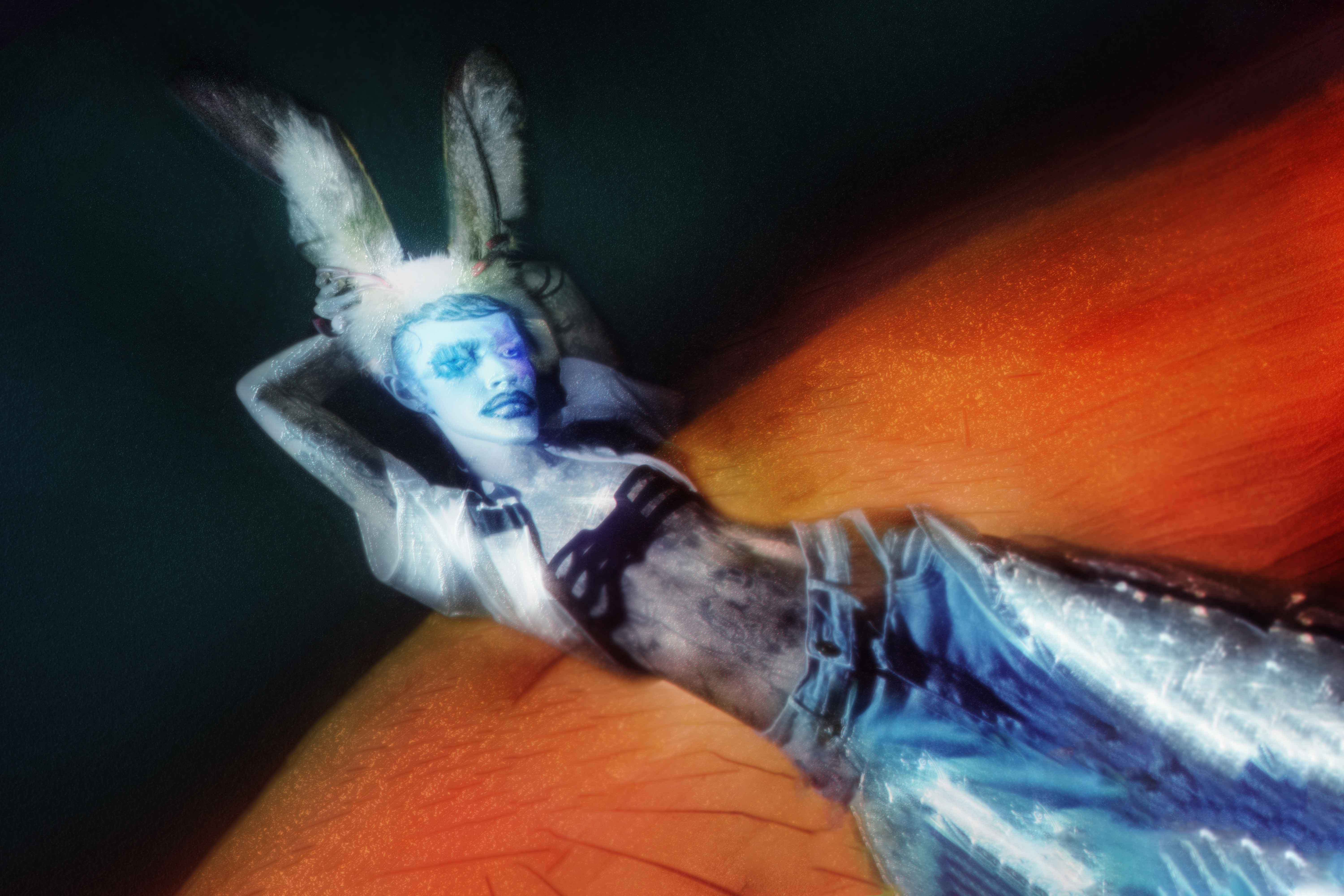
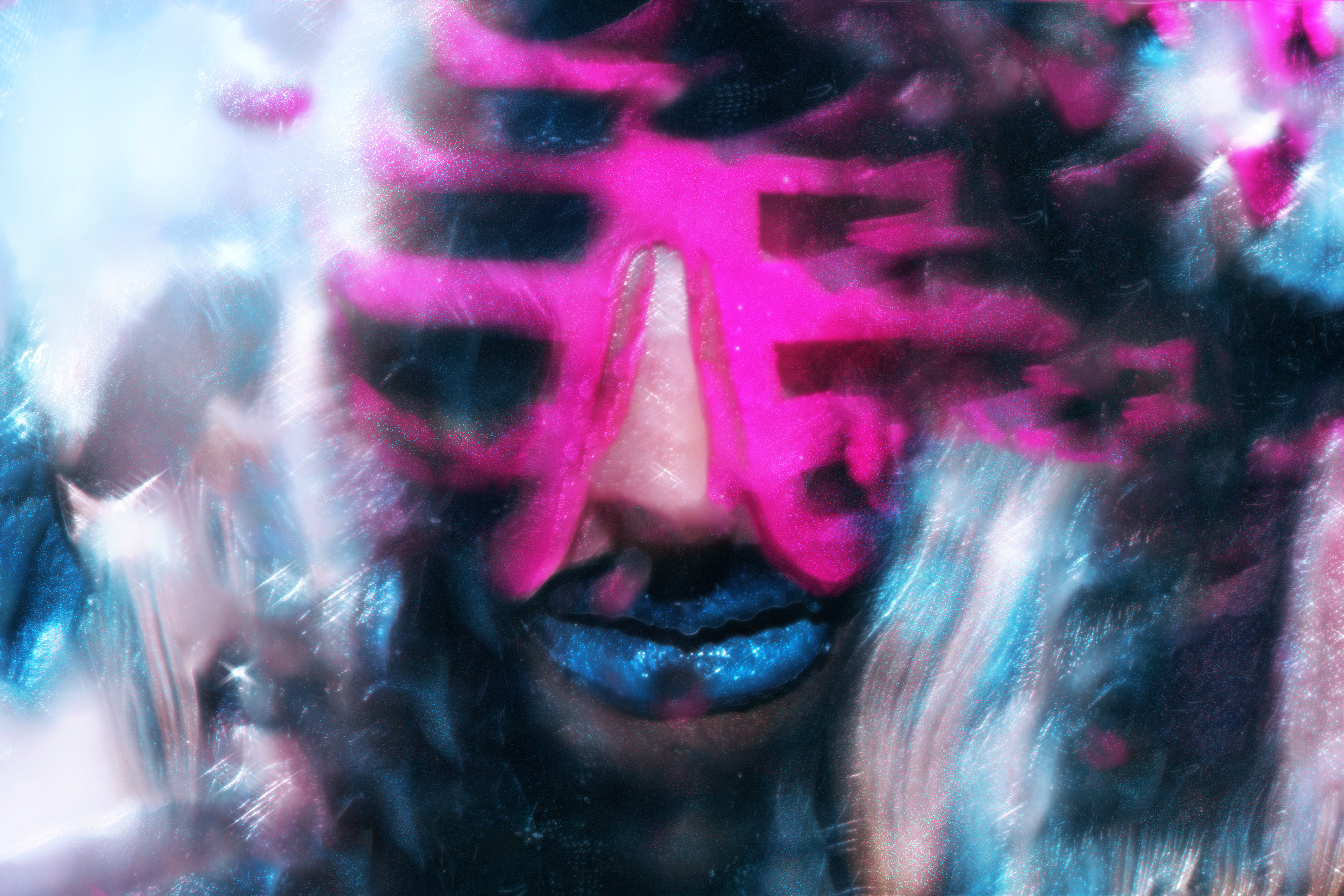
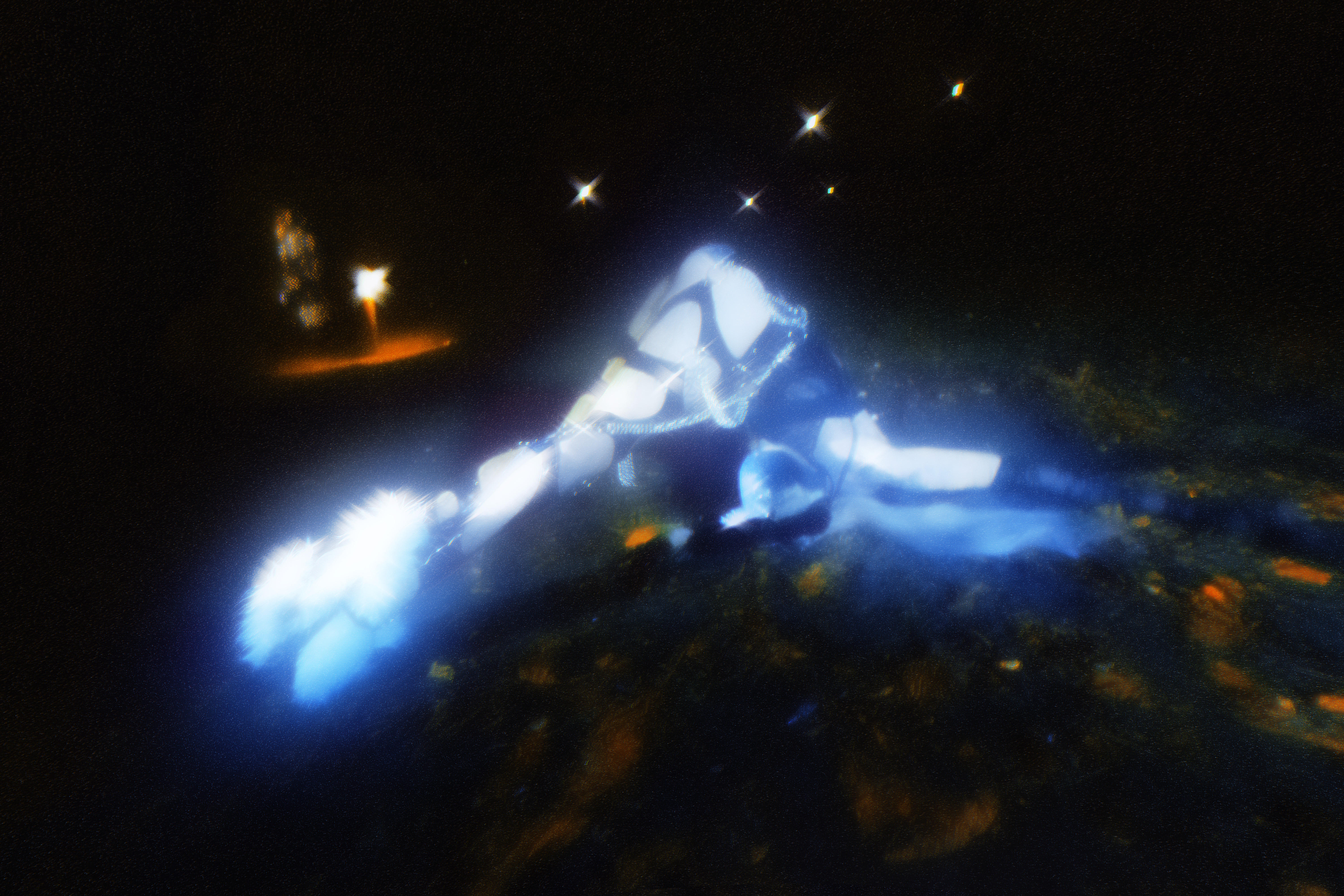
Since the New Year is approaching fast, I wanted to hear your “IN & OUT list” for 2024?
OUT
This world is very passé.
Humanity is out apparently.
Being called Bro/Sir/Dude
Cringing
Perfection
AI-generated images
NFTs
Hyperpop
IN
Boycotting Israel!
Bayonetta glasses because being a nerdy librarian is so in.
Cozy silly-looking slippers with eyes and ears, maybe fluffy.
Being at home playing video games and drinking tea.
Vinahouse is very in!
Miao’ing is in!
Noise-canceling headphones with no music playing paying artists is very in!
To finish off, would you let our readers know what you have going on — what can we look forward to from dj g2g?
I am currently working on the soundscape for your runway debut show for the upcoming CPHFW FW24 season on Jan 29th, and while I'm known for my edits, I am right now working on an originals only album release, which I am super excited about. The idea of creating a full album motivates me a lot, because it lets me tell a much wider, longer and more detailed story. Also I got an EP “Candyx World of Luv”, with Lila Sky coming up in a few days, containing 5 songs that I produced for her! (I also sing on one of the songs). I am working on new collaborations with many super exciting artists, can’t tell you names right now, but I cannot wait to show you everything.
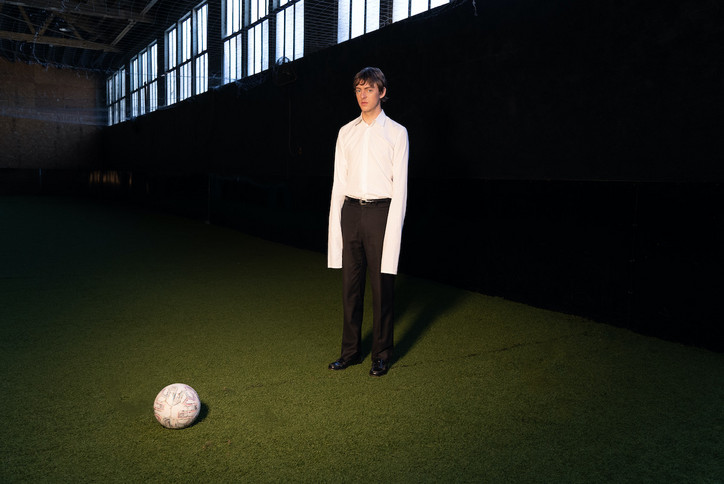
The Dare is unabashedly debauched to the point of obscenity. His music is cocky — clunky and low with no shortage of cowbells. It's loud, fast, and gritty. It's not the kind of music you’d play for your mother and he makes no attempts to sanitize it.
He's no blushing singer-songwriter and he doesn't think otherwise; he’s not trying to be political, nor highly conceptual. While none of us are advocating for an anti-intellectual movement, there’s something refreshing about art that doesn’t try to make itself seem deeper than it actually is. Where some devalue what they label as shallow, trashy, or lewd, we cherish the low-brow, the honest, and the hedonistic. You can eat the lotus, drink to get drunk, and revel in the carnal. Here we all are, in a post-COVID, pre-recession state of shamelessness — the only thing we can do is try to bacchanal our way through the end of the world.
There’s a certain appreciation for an artist who lets their music be received without control, especially in an era where performers often find it socially and financially beneficial to adopt an image of sincerity and vulnerability. In a landscape saturated with recycled bird and dirt metaphors, and a vocal style reminiscent of Phoebe Bridgers, sincerity as a marketing tactic ironically raises the question of its authenticity. While some people hold dear their air of intellectual superiority and asceticism, The Dare's music reminds people that indulgence is not a dirty word. It's cool to dance. It's cool to get messy. It's cool to sweat your way through a Gucci suit.
Harrison started making waves during the so-called "indie sleaze revival," a term subject to debate but indicative of the digital era's penchant for labeling, reflective of a neurotic self-curation and commercialization that reduces individuals to their perceived consumptive value. Yet, as digital cameras return and preciousness finds no place in the current economy, raunchiness and swagger become oddly attractive. Maybe I'm just regurgitating a sentiment especially pronounced in the downtown nightlife microcosm, but there's been an embracing of attitudes reminiscent of a bygone clubbing era. Whatever it was, The Dare unintentionally became the poster boy for it all, even if against his own wishes. Perhaps it's time to remove him from the weird "indie sleaze" pedestal we've placed him on.
The first time Harrison and I met, the first thing I noticed was a pair of bongos sitting in the corner. Maybe I didn't listen right the first time, but I don't think I heard bongos on The Sex EP, unless there was a quiet drumming behind lyrics like "I'd probably fuck the hole in the wall the guy before made." Our days were drastically different. I had just rushed over from my first class of my final year of undergrad, while he was navigating show invites and scheming to make a cameo in a photo with Ice Spice — a common ground, an easy conversation starter, truly the people's princess.
Harrison Patrick Smith— I gotta get a pic where I’m just standing way in the background. [Laughs]
office— Like trail cam footage.
Pretty much.
You gotta get her on a track.
I don’t know if that’s possible — I don’t know what’s in it for her. She’s already cool, famous, rich.
But you have bongos.
Yeah — she can’t get this anywhere else. [Laughs]
How did you first get into music?
My parents forced me to play violin when I was really young — like 4 or something — and I hated it. And around age 12, they gave me this ultimatum, that I could quit violin and play guitar, so I picked guitar. That’s when I was actually able to play music that I liked. I messed around in some bands in high school, but college is when I started seriously writing songs and touring. And then when I moved here, that’s when I learned how to DJ, throw parties, and play bigger shows.
Do you remember any violin?
No, I’m really bad at it. [Laughs]
Where’d the name come from?
I was just brainstorming random ideas and picking the best one — that’s how I do everything. But that was the best one out of like, twenty. The other names were pretty bad [laughs] they were over the place. One was “Closer,” one was “Spandex” or something like that. I wasn’t even sure of what the aesthetic of the project was going to be yet. I didn’t know what The Dare was, but the name sort of signified everything about the band without even listening to it.
So, you started the project not really knowing where it was going.
It was coming out of COVID. I knew I wanted to make dance music in any way, shape, or form, but I didn’t know exactly what kind. I had only made a couple of songs in that style, but my old band was disinterested — the songs didn’t fit. It was really just the birth of this project, and it’s still only four songs released. So, The Dare is still a baby project. And I don't even know what it's going to become.
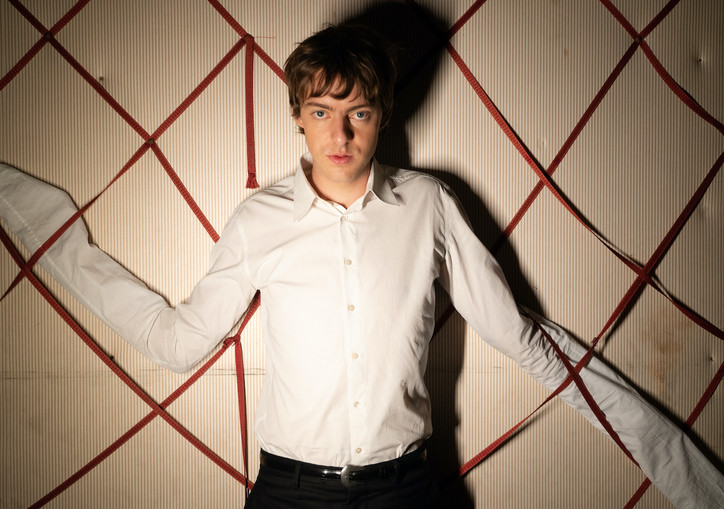
Was “Girls” the first single that came out of The Dare?
Technically, I put out the song “Bloodwork” under my old band name then took it down once I realized I wanted to start a new band. “Girls” was the debut single last summer, but it didn’t really pop off immediately. It’s funny, because I tried sending it to a couple of labels beforehand, and nobody really cared about putting it out, When I did put it out, it sort of snowballed, real organic growth. People just heard about it through word of mouth and were all really excited about it. That’s when things got crazy, really fast, it probably took a month or so to feel the hype.
I know this is gonna be an eye-roll question, but —
What’s my favorite color?
Not what I was gonna ask, but now that you say it…
Black. Or pink. Maybe a nice red.
Good choice.
Thank you.
Do you think this newfound nostalgia for the early 2000s helped get “Girls” as big as it did?
Definitely. Before I put the song out, there were already two years of nostalgia for that era in fashion, but I didn’t really care about that until recently. It never occurred to me in the making of the music. I just became obsessed with dance-punk and electroclash and bloghouse, and all these genres from that era. Maybe it was something in the air that led me to that music at the same time people were getting into that kind of fashion. Maybe I was just a part of a larger cultural interest. But for whatever reason, it felt like nobody cared about the music part of all that until the fashion part. I remember showing my friends The Rapture and Chicks on Speed and they didn’t really care for it. But after putting out “Girls”, especially in New York, there was a lot more interest, and then the people from the fashion world came and took over.
I feel like a lot of the new bands in New York are more fashion-adjacent, compared to the Brooklyn indie rock scene, which I used to be much more a part of. It’s funny, because even the music from the early 2000s was heavily affiliated with fashion and dressing up and performance. But Fischerspooner doing stuff like playing in Starbucks just for fun — that’s like, the opposite of a serious indie rock show.
Everyone talks about you spearheading the indie sleaze revival, but from what I’m hearing, you didn’t ask for that, you were sort of just thrust into it.
Yeah, that definitely wasn’t my intention. I just felt that nobody was using those sounds, those sonic palettes, or those attitudes. I wanted to bring that into now and make something new, not just rehash the past. I’m happy that there are a lot of cool new bands that are more aligned with the things I like — at least more than what was happening in New York five or ten years ago.
If you try and do everything from a lens of nostalgia, you’re not going to get anything new. You’re definitely doing your own thing. You didn’t even ask to be called “indie sleaze,” right?
I didn’t like the name. It sounds horrible. They could’ve come up with a much cooler name, “the electroclash revival” sounds better. “Dance punk revival” sounds better. Indie sleaze is too fashion adjacent — it’s more about the photographs and the clothes more than it is about the sound of the music. The music itself is electroclash, dance punk, bloghouse — any of those things are more fitting and better on the ears.
There’s all this talk about this new thing, and in a way it doesn’t really exist. I mean, it does, and there are a bunch of new bands, but none of them really cleanly fit into whatever anyone thinks that label means.
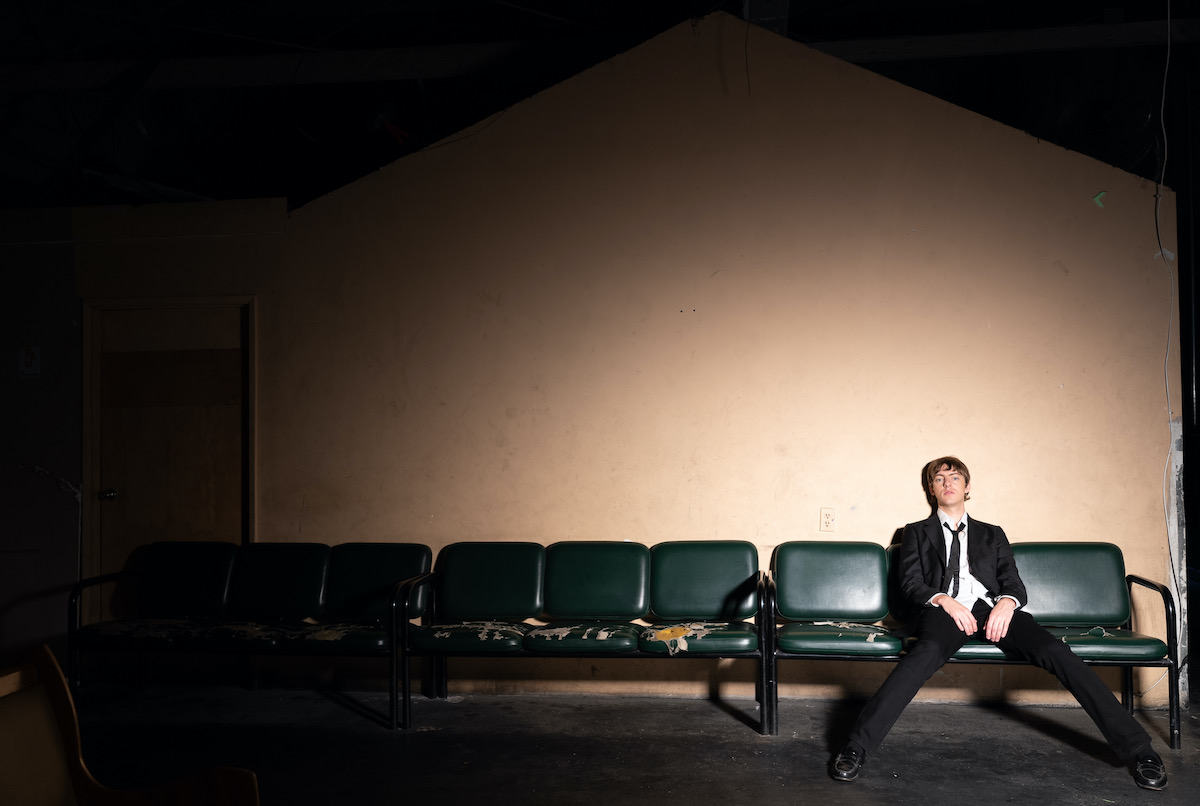
[Smith hits a (strawberry, pina-colada) vape]
You’re not being too precious when you sing about sex — you’re singing about it from a messy, purely carnal perspective. Some people may call that distasteful. What do you have to say to people who think your music is offensive or lewd?
Hah. If you think my music is offensive and lewd you might be living under a rock.
There’s a weird fake-deep sincerity and candor that’s plaguing a lot of new music, but you’re not trying to make anything sweeter than it actually is. Can you talk about that? Is there something liberating about not having to be so cerebral all the time?
I just like music that feels honest. People will put on the act of being sensitive, just as they will put on the act of being too cool, or being smarter than they are. I just don’t like music that’s trying to convince me of anything and it’s always immediately obvious, most artists slip into that trap once in a while and find themselves making something to please someone else or to serve an extramusical function and it usually never ends up good.
The indie scene can be so serious about itself sometimes, but for you, what’s the importance of the low-brow, the obvious, and “bad taste”?
I forget who said it, and I’m gonna butcher the exact quote, but the gist of it that having good taste is having good taste in bad things. That’s one of those mottos that lives in my head rent free. In my life I’ve seen things considered “bad taste” get reappraised and become “good” over and over. There’s a lot of freewheeling expressed in the muck of bad taste and that’s usually where a lot of the exciting and threatening changes in art happen.
Is the sound of the Sex EP the official Dare sound?
Not necessarily. In the wake of “Girls”, a lot of these new bands were more influenced by the darker slides of electroclash. And I have a really deep love of disco and funk music — I wanted the joy and the playfulness of that stuff to be a big part of my music. I want to write songs that are the thesis statement of the parties I throw, and the feeling I want at those parties. It shouldn’t be exclusive or expensive. I just want it to feel like this sweaty, anything goes, “lose yourself in the music” kind of vibe. [Laughs] I wanted to put those feelings into a song and have something to play at my parties.
Do you think Freakquencies has been successful in that way?
I think so. I’ve been doing it at the same place for about a year and a half, almost every week or at least a couple of times a month. It’s free and if you show up early you can get in easily, you might just have to wait in line a bit, but there are no tables, no bottle service — there’s none of that weird stuff that you get at the more expensive clubs in New York, and it’s still fun.
My band has gotten big enough to the point where people are coming for me, so Freakquencies are definitely starting to feel a little more like a show and less like a party, which is fine, but it’s possibly time for some growth or change — something to keep it interesting — because I really want the focus to be on the music and the party. I’m trying to turn the focus away from the DJ; I don’t want it to be a whole EDM thing, where it’s a bunch of people just looking up at the DJ and doing all this goofy shit with their hands.
Leading up to and during COVID, people weren’t really putting in effort into their performances — everything was paired down, like videos of people in their bedroom with their guitars. It became gauche to put effort into a show, but now, especially when tours are coming back, there’s more of a “spectacle” to everything. Where do you fit into all of that?
I like all kinds of shows big and small. Whatever conveys the emotions of the music properly is what’s important to me. My music is raw and rhythmic and playful and I want the show to reflect that. Electroclash as an era was in love with dressing up and karaoking and playing in random places (Astor Starbucks), so I want my shows to pay homage to all that stuff as well.
You said you were trying to turn the focus away from the DJ — and that’s why you wanted Freakquencies to undergo a little change. Do you think there’s too much focus on you as a person and not the music?
At that point I was just a little bit burnt out on DJing, and now coming off of this big run of live shows I’m excited about it again. I try not to worry about what people are focusing on, I can’t control it, all I can do is make music.
Most notable reactions to both the EP?
A lot of my heroes — people I grew up listening to — reached out and said how much they liked it Getting to work on music with them and spend time with them, that’s been the best thing about it. The worst is reading comments on Twitter from random internet haters. It’s never fun to look at. When anything starts getting really big, people are immediately averse– not that I’m that big [laughs] but there’s been a factual sort of rise in popularity, and there’s nothing to be gained by saying, “This is great. I love this.” You win Twitter points by being like, “This fucking sucks.”
I want people to get joy from the music and experience — have a positive reaction if possible. But there will always be people who don’t like it, and that’s sort of hard to accept. It’s easy to accept in theory, but it’s much harder when you’re confronting it directly and reading it. Humans are just wired to remember negative feedback and forget the positive ones. So, if you’re making stuff and facing a lot of bad stuff, it’s really important to take stock of the good things and not forget them.
If your aim was to make people happy, you definitely got that down. I don’t know if you needed to hear that from me. There’s not a lot of music out there that’s like, “I love having fun.”
There is, but it’s sort of contrived and not coming from an authentic spirit of joy. It’s coming from a marketable, commercial feeling. It’s like when people say that something’s going to be “the feel-good song of the summer.”
But inadvertently, you did sort of make the feel-good song of the summer.
For a small group of people in New York, maybe. I do see random people post TikToks from random countries where they’re at a party and people are going crazy and they’re playing my song. And I have tons of friends and DJs in LA who play it all the time. It’s very heartwarming.
At least in New York, you know the people here are having a good time, which isn’t to say that the people downtown are the most important people ever — quite the opposite. It's weird — a lot of people think what they’re doing is totally new and revolutionary.
In order to make anything, you have to have some feeling like that, otherwise you wouldn’t do it. Most things aren’t new or revolutionary. But you just have to believe it and fake it until you make it, or else nothing will get made. Why would you sit down if you’re thinking, “I’m just gonna make this over and over again.”
Your take is so much more forgiving than mine. You just got back from the homeland (shows in Europe, for everyone who says you look like you could’ve been in the Beatles). Does it seem like there’s anything different going on over there?
The internet has globalized a lot of trends in music and art. It’s not really different from New York except everyone talks funny.
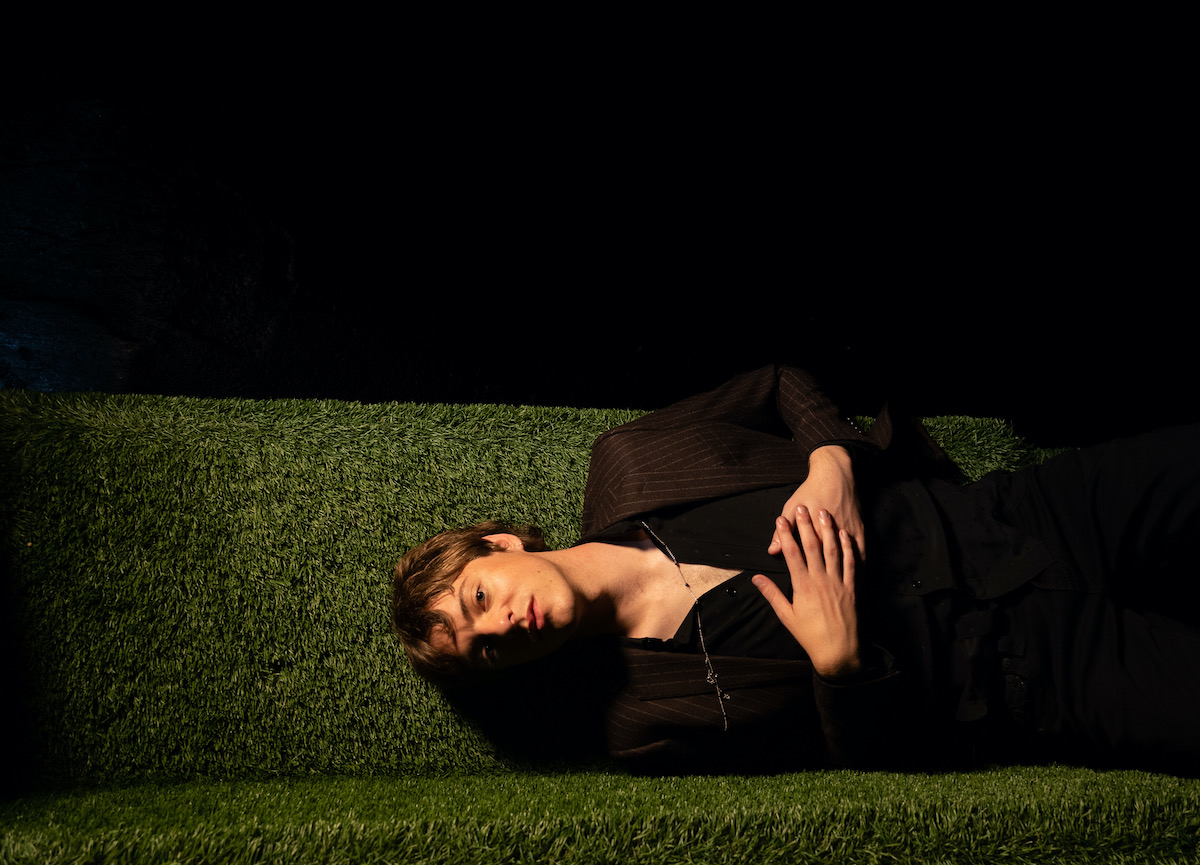
Do you ever get tired of people asking you about partying?
I don’t think people even ask me about it that much, but I do get tired of partying. I do think I have more stamina for it than most people.
Is that a good thing?
When you’re an artist, it’s really good to stay up late with other artists. You end up meeting people, you end up going to places you wouldn’t expect, and you have these experiences that you can write into songs or take home to whatever you do. The more you stay in, the crazier you get, and the less actual life experience you’re getting. That’s when the work becomes less enriched, so it’s really good to stay up late.
How late is too late?
Most nights probably don’t need to go past 3. But some definitely need to go until 7 or 8.
What’s your morning-after routine?
I love going to breakfast. If I’ve been out late, I’ll get up late and crawl over to some diner or one of my favorite spots in Brooklyn. I’m just trying to make it through the meal. I’m definitely taking Advil, drinking a lot of water. That’s about it, nothing special.
I typically like the day after big parties. Usually, there’s not much to do, or I intentionally don’t plan anything to do, and then I just kind of spend the day walking around and enjoying myself, you know, once the hangover goes away and then you can just stroll and enjoy the day off.
What’s an inspiration you have that no one really knows about?
Belle and Sebastian. Stuart Murdoch is the best storyteller. The songwriting — the arrangements and the compositions — they’re unreal. And a lot of the songs are really sexual in a weird way — in this casual, understated way that I find super compelling. Maybe it’s because I’m not from Glasgow or whatever. He’s just a huge influence on the kind of songs I want to write.
They’re super cute — do you know Kimya Dawson? I feel like you would fuck with Kimya Dawson.
She’s cool. I like a lot of freak folk stuff in general. There’s this new artist from New York — Joanna Sternberg. I don’t think she’s gotten a lot of press lately, but she’s put out this incredible record that’s probably one of my favorite records of the year. But I like Kimya Dawson. It’s interesting because her scene which was freak-folk was adjacent to electroclash in New York, and both scenes were super hated when they first came into being but then they just established themselves over time and now there are bands from both of those scenes that are sort of canonized.
And what’s the state of the scene now?
From talking to other people who throw parties, everyone’s sort of feeling like the honeymoon period has ended. When COVID was happening, rents fell a lot and a lot of people moved downtown, but now people are getting priced out. As that happens, I feel like all these parties started because people could go out again and everybody wanted to be a part of something like that, but it’s been a year or so since that feeling kicked in collectively, and I think people are starting to get a little tired of partying all the time, so it feels like this is going to be a kind of period of change, where people change where they party. I don’t think people are going to completely stop partying, but they won’t be going out as much as last year. Some parties are gonna stop, and new ones are going to pop up in odd places.
What’s your first memory of Home Sweet Home?
I went there after a friend’s art opening right when I moved to NYC and there were two guys spinning Todd Terje to an empty room. I remember being like, “Huh cool little place,” and then forgot about it for two years until my friend Sam asked me to come in and DJ.
You said you think it’s time for some growth in your parties, are you planning on keeping Freakquencies going?
I am. But I’ve also been thinking about trying different things, just to keep it interesting and fun and get different people in there. The one I did for Fashion Week was at Good Room, which is five times the size of Home Sweet Home, and it’s a real dance club. But I kind of want to keep doing at Home Sweet Home forever. I just really like it, and it feels like home base. I like when the party is small because when it gets too big, it’s less intimate. The more unwieldy things get, the less control you have over the feeling. But I do want to introduce sister parties to Freakquences that have intentional and different aesthetics.
Why was it on a Wednesday instead of your normal Thursday?
Because of the Lucky Jewel show. Also, Good Room is very specific about what days you could book.
Have you heard that stuff: “Wednesday is the new Friday?”
Who says that? [Laughs]
The people who party on Wednesdays! Can you tease anything for the future?
Not yet, but there will be a lot more very soon.
What’s your uniform if you can’t have the suit?
T-shirt with boot-cut jeans and pointy boots.
Thoughts on Poppers?
Good to do under five times a night, once every two weeks.
Thoughts on your fangirls?
Salute.